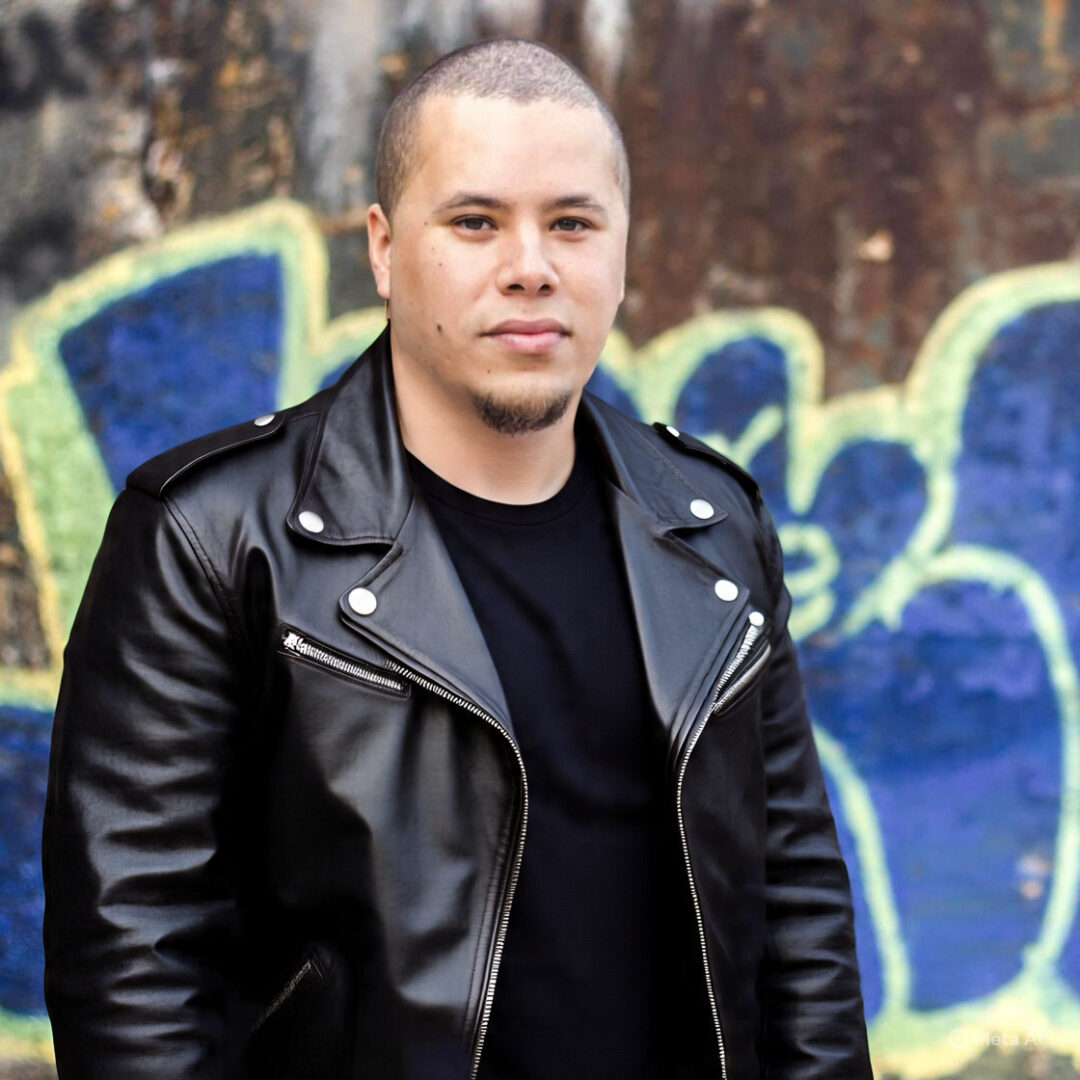We’re looking forward to introducing you to Dr. José Valentino Ruiz. Check out our conversation below.
Hi José Valentino, thank you so much for taking time out of your busy day to share your story, experiences and insights with our readers. Let’s jump right in with an interesting one: What do you think is misunderstood about your business?
When people glance at my résumé or see my social media updates, they usually walk away with one quick conclusion: “José does a lot.” Musician. Producer. Composer. University professor. Cultural diplomat. Multi-instrumentalist. Author. Publisher. Keynote speaker. That list is accurate — but it’s also misleading. It can make my work look like a string of disconnected gigs and accomplishments.
What’s most misunderstood about my business is that it’s not simply a matter of collecting titles or staying busy. Everything I do is part of an integrated, mission-driven creative enterprise built around one clear goal: empowering people, ideas, and communities through music and creativity.
1. I’m not just making art — I’m building ecosystems.
Many imagine a musician’s business as writing songs, booking shows, and recording albums. That’s a piece of what I do, but it’s only the surface. My deeper work is about building infrastructure — creating systems that help artists, educators, and creative entrepreneurs thrive for the long haul.
Through JV Music Enterprises and my role as Director of Music Business & Entrepreneurship at the University of Florida, I help musicians think beyond talent and into strategy. We talk about business models, intellectual property, licensing, negotiation, value creation, and how to protect one’s creative vision while still making a living.
My academic side isn’t separate from my artistic side; it fuels it. Serving as Editor-in-Chief of publications like the Creativity & Commerce Journal and the International Journal of Music Entrepreneurship & Leadership isn’t just another bullet point — it’s how I ensure that research and practical frameworks make their way into real-world use. When I step into a classroom, I’m not just teaching theory; I’m handing students tools that I’ve tested myself as a producer, composer, and entrepreneur.
2. The business is mission-driven — not just brand-driven.
Another misunderstanding is that this career is about recognition. I’m deeply thankful for every milestone — Latin GRAMMY®, EMMY®, Global Music Awards, DownBeat® distinctions — but those achievements are fruit, not the root. The real engine of my work is purpose: using music and creativity to connect cultures, unlock opportunity, and help others discover what’s possible for them.
That’s why I built Berisheet Press, a publishing platform creating journals and books for creatives, educators, and ministry leaders who want to transform their fields. Launching journals like the Creativity & Commerce Journal or the International Journal of Worship Arts & Creative Ministry isn’t about prestige. It’s about equipping others to share new research, fresh ideas, and visionary solutions.
The same is true when I travel as a U.S. Speaker of Creative Economy & Global Arts Entrepreneurship. Those residencies — in Africa, the Caribbean, Europe, and beyond — aren’t just concert tours. They’re about equipping local leaders to launch businesses, shape cultural identity, and build sustainable creative economies.
3. Creativity and scholarship aren’t opposing worlds — they feed each other.
Some think that once you become a professor or researcher, your artistry fades into the background. My reality is the opposite: scholarship and creativity constantly energize one another.
When I write for publications like The Conversation, All About Jazz, or The Flute View — or present at platforms such as the International Research Forum for Music Pedagogy & Practice or Global Hip Hop Studies — I’m not just theorizing; I’m distilling what I learn by doing. The studio sessions, the business negotiations, the cross-cultural collaborations — those experiences get turned into research and frameworks that other musicians and educators can apply.
This loop — practice informing research, and research strengthening practice — is what keeps my business dynamic. It’s also what makes my teaching practical; students aren’t just getting “classroom knowledge,” they’re being prepared for the realities of a rapidly evolving music and creative economy.
4. Being a “multi-instrumentalist” isn’t a novelty — it’s a mindset.
People sometimes think being a multi-instrumentalist is a party trick — a way to impress an audience with versatility. But for me, it’s a philosophy. Learning many instruments forces you to adapt quickly, listen deeply, and communicate across cultures and genres. That adaptability shows up far beyond music.
It’s what allows me to move seamlessly from composing a film score to producing a record, from leading an international entrepreneurship seminar to speaking about cultural diplomacy — sometimes in the same week. Versatility isn’t a side note; it’s a resilience strategy.
5. Publishing and speaking aren’t side gigs — they’re essential to the model.
Another misconception is that public speaking, editorial work, and publishing are “extras.” In truth, they’re core to my business model and impact strategy.
Keynotes and cultural-diplomacy engagements bring not just visibility but also partnerships and resources that I can channel back into education, mentorship, and production. Publishing builds influence — not for vanity, but to open doors for others. Through platforms like F-flat Books and Berisheet Press, new scholars and practitioners can share their ideas, shape their fields, and grow their credibility.
This multi-channel approach creates financial sustainability, but it also creates freedom — freedom to pursue mission-driven work without every project having to be profit-driven.
6. It’s not a one-person show — I’m the architect, but I’m not alone.
Perhaps the most overlooked truth about my work is that while I design and lead, I don’t operate in isolation. Behind the scenes, I have a team of employees who keep JV Music Enterprises and Berisheet Press running — managing production schedules, editing, communications, publishing logistics, and countless moving parts. That staff infrastructure is invisible to most who just see me teaching, performing, or traveling, but it’s essential for sustaining multiple ventures at a high level.
Equally vital is my family’s support. My wife and children help me stay grounded, keep perspective, and remember what matters most. They’re part of the reason I can run a global enterprise without losing peace or presence at home.
And at the very foundation is my faith. Trusting the Lord Jesus Christ guides my decisions and gives clarity when opportunities compete for attention. It’s that spiritual anchor that keeps my work integrated and mission-focused rather than reactive or scattered.
The Big Picture
When people look at my CV, they see a long list of roles and achievements — performing artist, composer, professor, cultural diplomat, author, publisher. They might assume my work is fragmented or opportunistic. But the truth is the opposite: it’s deeply strategic and purpose-driven.
My business is about designing systems of creativity — taking the skills and gifts I’ve been entrusted with and organizing them into vehicles that serve others and build lasting impact. The performances, the teaching, the publishing, the research, the diplomacy — they’re all part of one coherent calling.
So what’s most misunderstood? That this is just “doing a lot.” It’s not. It’s about building a mission-aligned enterprise — one sustained by trusted collaborators, a dedicated staff, a loving family, and faith that keeps the vision clear. It’s about weaving music, entrepreneurship, scholarship, and cultural exchange into something larger than a career: a legacy of creativity creating change.
And that’s what I want other artists and entrepreneurs to see — that success isn’t about chasing titles or collecting gigs. It’s about designing a life and a business that let your gifts multiply and your mission last.
Can you briefly introduce yourself and share what makes you or your brand unique?
If you’ve ever tried to describe what I do in one sentence, you’ve probably struggled — and honestly, I have too. My professional life lives at the intersection of music, entrepreneurship, scholarship, and cultural diplomacy. At my core, I’m a musician and creative entrepreneur who has spent decades asking a simple but disruptive question: how can music do more than entertain — how can it empower, connect, and create opportunity for others?
That question is the through-line behind everything I build, whether I’m performing on stage as a multi-instrumentalist, producing an album for an emerging artist, training future creative entrepreneurs at the University of Florida, editing scholarly journals, or working abroad as a U.S. Speaker of Creative Economy & Global Arts Entrepreneurship. My work may look like a long list of separate ventures, but each piece is part of one coherent mission: to transform creativity into a sustainable, world-changing force.
Growing From Artist to Architect
My journey began like many musicians’ journeys — with passion for the craft itself. I studied music theory and performance, completing my Bachelor of Arts at the University of South Florida and earning a Master of Music in Instrumental Performance from the Frost School of Music at the University of Miami. I loved sound — the alchemy of instruments and the possibilities of improvisation. But I also felt a restlessness; I could see how many gifted musicians struggled to make a living or build meaningful careers.
That realization pushed me toward deeper learning. I pursued advanced study not just in music but also in leadership and ministry: a Ph.D. in Music Education, a Doctor of Ministry in Global Outreach & Missiology, and a Doctor of Biblical Exposition with a concentration in Family Entrepreneurship. Those degrees weren’t about collecting credentials; they gave me frameworks for empowering others, shaping communities, and leading ethically. They also helped me think systemically — how education, enterprise, and faith intersect to support human flourishing.
From Stage to Strategy
I began as a performer and producer, collaborating with artists across genres and touring internationally. Over time, my studio work expanded — not just as a session player but as a producer, arranger, and engineer, with projects spanning children’s music, jazz, pop, gospel, and global fusion. I was honored along the way with Latin GRAMMY® and EMMY® Awards, 35+ Global Music Awards, and 55+ DownBeat® distinctions. Those recognitions matter less to me as trophies and more as proof that independent creative work can reach global excellence.
But the bigger story was emerging: every production session was a classroom, every collaboration an entrepreneurial lab. I wasn’t just making records; I was building relationships and helping artists shape sustainable careers. Those insights — about creativity, strategy, and survival in a volatile industry — started pulling me into teaching and mentorship.
Building Educational Pathways
Today, I serve as Associate Professor and Director of Music Business & Entrepreneurship at the University of Florida, where I created and lead one of the nation’s most forward-looking programs for training 21st-century music entrepreneurs. We teach not just business theory but real, tested practices: licensing and publishing, contract negotiation, digital marketing, cultural entrepreneurship, financial literacy, and creative leadership.
One of the things that makes our work unique is the publishing ecosystem I’ve built alongside the program. Students and emerging scholars can publish original research, case studies, and thought leadership pieces through Berisheet Press, the platform I founded. Under Berisheet, we’ve launched multiple peer-reviewed and editorially curated journals, including the Creativity & Commerce Journal, the International Journal of Music Entrepreneurship & Leadership, and The Vanguard: A Media Journal of the Arts, Enterprise, and Global Culture.
Why is that important? Because creative entrepreneurs need credibility and intellectual infrastructure just as much as capital. We’re helping students and practitioners not only do the work but also shape the conversation — to write the playbook for the next generation of music business and creative leadership.
Cultural Diplomacy and Global Impact
Another dimension of my brand — and one that surprises people — is cultural diplomacy. In 2025, I was appointed the first-ever U.S. Speaker of Creative Economy & Global Arts Entrepreneurship by the U.S. Department of State. In that role, I’ve worked with ministries of culture, universities, non-profits, and creative hubs in Africa, Europe, the Caribbean, and Latin America to help build local creative economies and equip artists as entrepreneurs.
For example, in Equatorial Guinea I spent ten days delivering 28 workshops and consultations on everything from sustainable touring models to intellectual property for local filmmakers, dancers, and musicians. I’ve done similar work in Uganda, Zimbabwe, Cameroon, and the Bahamas — always with the aim of empowering local talent to thrive on their own terms and preserve their unique cultural voices while participating in the global creative economy.
This isn’t “touring” in the traditional sense. It’s diplomacy through art and enterprise — using music as a vehicle for education, opportunity, and bridge-building.
A Business That Is Purpose-Driven
Some might see my work and think it’s a personal brand built on achievement. But the real driver is purpose, not visibility. Awards and recognition are affirmations, but the reason I built JV Music Enterprises and Berisheet Press is to create opportunities — for emerging artists, for students, for scholars, for cultural leaders who might otherwise be overlooked.
My business integrates several streams: production, publishing, education, speaking, and cultural consulting. Those streams keep the enterprise financially sustainable, but they also keep it independent. That independence is critical because it allows me to pursue mission-first projects — training at-risk youth, supporting underrepresented creators, building new journals — without needing every initiative to turn a profit.
This model also demonstrates to my students and clients what’s possible: you can design a creative life that’s resilient, diversified, and deeply aligned with your calling.
Distinctives of My Brand
1. Integration over fragmentation.
Many creative professionals juggle side hustles. My approach is different: I build systems, not silos. Performance informs teaching. Teaching fuels research. Research shapes publishing. Publishing drives influence and new opportunities for cultural diplomacy. It’s one organism with many expressions, not a pile of disconnected gigs.
2. Global reach with local respect.
When I work internationally, I don’t impose; I listen. My role is to equip and amplify what’s already vibrant in each culture. That respect creates authentic partnerships and long-term impact.
3. Research-led, but action-focused.
I value scholarship, but I’m not an ivory-tower thinker. Everything I publish and teach is field-tested — born out of the studio, the stage, the negotiation table, and real-world creative work.
4. Faith and family at the center.
Though my work is global and fast-paced, it’s anchored. My faith in the Lord gives clarity about purpose and timing. My wife and children ground me; their support makes sustainable impact possible. That spiritual and familial foundation shapes the way I lead and serve.
5. Building platforms, not just personal legacy.
From journals to student-run projects to collaborative albums, much of what I build is meant to outlast me. The goal isn’t just to succeed personally; it’s to create pathways for others.
Current and Future Work
Right now, a lot of my energy is going into expanding Berisheet Press — building a home for Christ-centered and ethically driven scholarship on music, entrepreneurship, creative ministry, and cultural strategy. We’re launching new journals and resources for educators and leaders who want depth without ideological agenda, just rigorous, mission-aligned thinking.
I’m also deepening my work in cultural diplomacy, with upcoming projects in Africa, Europe, and the Caribbean to help nations formalize creative-economy infrastructure — everything from business training for artists to policy conversations about intellectual property and cultural exchange.
On the production side, I continue to produce and collaborate with artists across jazz, gospel, Latin music, and global fusion — helping them find their authentic sound and sustainable business models. And in my academic world, I’m refining UF’s Music Business & Entrepreneurship curriculum to prepare creatives for the realities of AI-driven economies and shifting industry models.
Why It’s Special
What makes my brand distinct is that it’s holistic and human-centered. Music is the spark, but the business is about people — equipping them to build lives of meaning and creative sustainability. I’ve lived the struggle of figuring out how to turn passion into a profession without losing your soul or your purpose. Now I get to turn those hard-won lessons into infrastructure for others: training programs, publishing platforms, cultural-exchange initiatives, and mentorship networks that give creatives agency and longevity.
In a world where the arts often get reduced to entertainment or marketing, I’m trying to reclaim them as vehicles for transformation — economically, educationally, and spiritually. That’s what keeps my work exciting and deeply personal.
Final Thought
If there’s one thing I want readers to know about me and my work, it’s this: creativity is not just self-expression — it’s strategy, service, and stewardship. My journey — from a young flutist improvising in Tampa to a multi-award-winning producer, professor, publisher, and U.S. cultural diplomat — is proof that artistry can become architecture.
I’m grateful to do this work alongside an incredible team of employees who support my companies, the unwavering love of my family, and the guidance of my faith, which keeps every opportunity aligned with a bigger calling.
At the end of the day, my “brand” isn’t about me; it’s about building structures that let others thrive — so that music and creativity continue to connect, empower, and transform lives across the world.
Okay, so here’s a deep one: What breaks the bonds between people—and what restores them?
Human connection is one of life’s greatest treasures and most fragile assets. We are wired for relationship — whether friendships, families, teams, or partnerships — but the ties that hold us together can fray or snap more easily than we realize. Over decades of working with artists, entrepreneurs, and global leaders, I’ve seen that when relationships fail, it’s rarely from one dramatic blow; it’s usually a series of small fractures that go unaddressed. The good news is that bonds can be restored — but only when we bring courage, honesty, and self-awareness.
Below are the patterns I’ve witnessed break connection and the practices that can rebuild it. While I draw from my own experience and faith, these are universal principles echoed across philosophy, business leadership, and lived human wisdom.
1. Hiddenness and Pretending
Relationships begin to fracture the moment we stop showing up as our real selves. Fear and shame make us hide parts of who we are — mistakes, doubts, needs — and instead present a polished mask. Over time, people end up relating to a version of us that isn’t authentic. The result is subtle distance and distrust.
Psychologist Carl Rogers wrote, “What is most personal is most universal.” When we withhold truth, we deny others the chance to know and love the real person. And transparency doesn’t mean reckless oversharing; it means enough honesty that trust can breathe.
Even ancient wisdom points here: “Each of you must put off falsehood and speak truthfully to your neighbor” (Ephesians 4:25). Integrity is not just a moral ideal; it’s the oxygen of connection.
Restoring the bond: begin small — own mistakes, share what you’re wrestling with, ask for help when you need it. In teams, leaders who acknowledge limitations create psychological safety. In friendships, vulnerability invites deeper reciprocity.
2. Betrayal and Broken Promises
Few things sever trust faster than betrayal — a broken confidence, an infidelity, an agreement quietly abandoned. The sting is so deep because betrayal touches safety and belonging.
Business ethicist Stephen Covey wrote, “Trust is the glue of life. It’s the most essential ingredient in effective communication. It’s the foundational principle that holds all relationships.” Without it, even brilliant partnerships collapse.
Restoring the bond: Rebuilding trust is slow but possible. The one who wronged must take radical ownership — no minimizing, no excuses — and then demonstrate change with consistency over time. The one who was hurt must choose whether to forgive (forgiveness meaning releasing vengeance, not instant reconciliation). Where both are willing, transparency and measurable change can allow trust to regrow.
3. Pride and Self-Protection
Often, bonds don’t break with loud fights but with quiet ego. Pride says, I won’t be the first to apologize. I can’t risk looking weak. Defensive posturing keeps hearts at arm’s length. Aristotle observed that “he who has never learned to obey cannot be a good commander.” Likewise, he who cannot humble himself cannot truly lead or love.
One of the simplest biblical insights here: “Do nothing out of selfish ambition or conceit. Rather, in humility value others above yourselves.” (Philippians 2:3). Humility doesn’t mean self-erasure; it means the courage to step out of self-protection and move toward understanding.
Restoring the bond: Practice small humility daily. Say “I was wrong.” Admit when you don’t know. Praise others’ strengths. These small acts build a relational climate where conflict can be resolved instead of avoided.
4. Confused Identity
Another subtle fracture is what happens when we don’t know who we are. Insecurity drives two extremes: merging with others to gain approval or controlling them to feel safe. Both distort relationship and create exhaustion.
Philosopher Søren Kierkegaard wrote, “The greatest hazard of all, losing one’s self, can occur very quietly in the world, as if it were nothing at all.” When we haven’t clarified our identity and values, we use relationships as a mirror to feel okay. That pressure strains every bond.
Restoring the bond: Do the internal work first. Know your core values, your story, your strengths and limits. From my perspective, identity is first a gift — we are each created with inherent worth (“I praise you because I am fearfully and wonderfully made,” Psalm 139:14). But even outside a faith framework, personal clarity is essential. Once we know who we are, we can relate not out of neediness or control, but out of secure presence.
5. Inconsistency and Broken Commitments
Trust is built through small, predictable actions. When words and actions repeatedly misalign — promises forgotten, support offered but withdrawn, time and again — connection unravels. Maya Angelou’s advice is blunt and right: “When someone shows you who they are, believe them the first time.”
Restoring the bond: Keep commitments. If you say you’ll show up, show up. If you can’t, communicate early and clearly. Reliability might seem ordinary, but it’s the quiet power that makes closeness safe.
6. Neglect of Self-Discipline
Sometimes the relationship isn’t failing because of malice but because one person’s life is chaotic — unmanaged emotions, financial instability, unhealthy habits. Without self-respect and structure, we can’t be a safe place for others.
Proverbs gives a vivid picture: “Like a city whose walls are broken through is a person who lacks self-control.” (Proverbs 25:28). Strong bonds require personal stability.
Restoring the bond: Invest in your own growth. Practice emotional regulation, healthy boundaries, wise routines. Seek therapy, coaching, or mentoring if needed. As you build inner order, you become trustworthy and capable of sustaining deep connection.
7. Avoiding Hard Conversations
Finally, bonds break when we let grievances fester. Conflict ignored becomes bitterness; unspoken hurt grows like mold in silence. The business world knows this: Patrick Lencioni, author of The Five Dysfunctions of a Team, notes that fear of conflict leads to “artificial harmony” and eventual collapse.
Restoring the bond: Address issues early and kindly. Listen to understand, not just to respond. You don’t need to agree on everything, but clarity and respect keep the air clear. Simple practices — weekly check-ins in a marriage, honest debriefs on a team — prevent small tensions from becoming deep fractures.
Habits That Heal and Guard Connection
If we collect the lessons above, restoration comes down to a set of intertwined habits — spiritual at their root but practical in daily life:
1. Transparency: Light over shadows. Name what’s real, including failure.
2. Vulnerability with Wisdom: Share truth while respecting boundaries.
3. Identity Before Purpose: Build self-awareness and core values before trying to perform or please.
4. Consistency: Align word and deed over time.
5. Self-Discipline: Steward your life to be safe and reliable for others.
6. Courageous Conversation: Address conflict promptly and with empathy.
7. Forgiveness and Change: Let go of revenge and do the hard work of new patterns.
These aren’t quick fixes; they’re practices — but they work. Over time, they weave stronger, deeper ties than before.
How Leaders and Organizations Apply This
Though these insights come from deeply personal spaces, they’re crucial for professional and organizational health too. In my world of music, entrepreneurship, and cross-cultural work, relationships are the foundation of everything: collaboration, trust with students, long-term creative partnerships, global diplomacy.
1. Transparency creates credibility. Admit limits and people will trust you more, not less.
2. Consistency is your reputation. As Warren Buffett said, “It takes 20 years to build a reputation and five minutes to ruin it.”
3. Identity clarity keeps mission drift away. Organizations that know their “why” connect more deeply and attract aligned people.
4. Peacemaking keeps teams creative. Healthy conflict produces better art, better ideas, better strategy.
A Final Reflection
Human bonds break in many ways — secrecy, pride, betrayal, inconsistency, unresolved conflict — but they heal through something both ancient and always new: truth, humility, discipline, and love lived out in action.
We don’t need perfect people to create lasting connection. We need authentic people — individuals willing to be seen, to take responsibility, to grow. We need anchored people — who know who they are and so can give and receive without fear. And we need faithful people — not flawless, but committed to showing up and rebuilding when trust falters.
I often think of a simple but profound line from the business thinker Peter Drucker: “Culture eats strategy for breakfast.” The same is true personally: who we are and how we love will always outweigh what we plan. Lasting bonds come when we choose to be whole and honest first — then build everything else from there.
Whether in families, friendships, or creative enterprises, the opportunity is the same: to do the hard, courageous work of connection. To trade hiding for honesty, fear for humility, drift for discipline. And to remember that restoration isn’t just possible — it can make relationships stronger than before, forged in truth and resilience.
What did suffering teach you that success never could?
When people ask what suffering taught me, the usual expectation is a timeline: I suffered, I learned, and then I succeeded. That’s not my story. Over time I’ve learned something far more disorienting — and liberating: suffering is not a detour from success; suffering is success.
Not success in the glossy, Instagram-ready sense. Not the version tied to titles or applause. I’m talking about a deeper, harder, and ultimately more sustaining success — the kind measured in character, resilience, and the ability to love and lead well.
We often talk as if life is linear: pain first, prize later. But if you’re committed to growing, to building, to caring about people, then suffering is not a stage you “get through” on the way to a painless arrival. It’s the very soil where real success keeps taking root.
1. Suffering Is the Currency of Growth
Most of my proudest professional moments — launching global initiatives, producing award-winning albums, mentoring students who changed their lives — were forged in seasons of strain. Long hours, uncertainty about outcomes, risk of failure, even heartbreak when trusted partners left or doors closed.
The philosopher Seneca wrote, “Fire tests gold, suffering tests brave men.” Suffering has been my testing ground. It’s where I learned emotional durability, creativity under pressure, and the humility to start again. Success without suffering is usually just comfort — it doesn’t form you.
The Bible echoes this paradox: “We rejoice in our sufferings, knowing that suffering produces endurance, and endurance produces character, and character produces hope.” (Romans 5:3–4). We don’t chase suffering, but we also don’t run when it arrives; it’s the forge for strength.
2. Suffering and Success Happen Simultaneously
Early in my career, I believed success would deliver me from struggle. Win an award, land the job, earn the degree — and the turbulence would stop. Instead, I found the opposite: every new plateau carried its own pain.
1. Success expanded influence — and with it, criticism and misunderstanding.
2. Success brought leadership — and with it, the weight of others’ pain.
3. Success opened global opportunities — and with them, long nights alone in hotels, complex cultural negotiations, and the ache of distance from family.
Jesus warned, “To whom much is given, much will be required.” (Luke 12:48). The more impact you have, the more you will absorb friction and risk.
This isn’t a glitch; it’s the cost of meaningful work. If you build something that matters — a business, a classroom, a creative community — you will feel the strain of caring deeply. Frederick Buechner wrote, “Here is the world. Beautiful and terrible things will happen. Don’t be afraid.” Suffering and success are not opposite lanes; they are parallel tracks.
3. Suffering Humanizes Ambition
Ambition by itself can harden us. Suffering softens. It keeps you human and connected. As an educator and entrepreneur, my calling isn’t just to create profitable models or impressive programs — it’s to serve people. And people live complex, sometimes heartbreaking lives.
When a student confides about failure or family crisis, I don’t meet them from a platform of perfection; I meet them from my own scars. “Carry each other’s burdens,” Galatians 6:2 says, “and in this way you will fulfill the law of Christ.” Leadership isn’t only vision; it’s companionship in pain.
Business leader and author Simon Sinek says, “Leadership is not about being in charge. It is about taking care of those in your charge.” You cannot truly take care of people without entering, in some measure, their suffering. If you remain untouched by it, you stay distant and transactional.
So part of my success is my willingness to suffer with. To weep with the weeping, to sit in complexity when a student’s dream collapses, to bear the loneliness that comes when you advocate for unpopular but needed change.
4. Suffering Teaches You to Build on Rock, Not Sand
When you win too easily, you can mistake applause for stability. Suffering exposes what’s flimsy. In times of loss — when projects failed, partnerships dissolved, or I felt invisible — I was forced to ask hard questions: Who am I without my work? Without recognition? What can’t be taken?
That painful stripping was also clarifying. “Everyone who hears these words of mine and puts them into practice,” Jesus said, “is like a wise man who built his house on the rock.” (Matthew 7:24). Rock isn’t built by comfort; it’s carved through storms.
In business terms, failure forces better architecture. Jim Collins, in Good to Great, observed that great companies confront brutal facts yet maintain faith. Suffering makes you sober about what’s fragile but stubborn about what’s essential.
5. Suffering Builds Capacity to Hold Both Joy and Pain
A surprising gift of suffering is increased emotional capacity. The more I’ve endured — disappointments, betrayals, physical exhaustion — the more room I have to hold space for others’ joy without envy and others’ pain without being crushed.
Viktor Frankl, psychiatrist and Holocaust survivor, wrote, “In some ways suffering ceases to be suffering at the moment it finds a meaning.” Pain enlarges us when we let it teach empathy and perspective.
Success alone often shrinks perspective to self; suffering expands it. It teaches you not to flinch from life’s contradictions. You learn to celebrate an album’s release while grieving a lost opportunity. You can feel both proud and unsure, hopeful and brokenhearted. That complexity makes you a deeper friend, leader, and artist.
6. Suffering Demands Discipline and Self-Respect
Comfort doesn’t require structure; suffering does. When seasons felt crushing — travel fatigue, creative rejection, or personal loss — I had to decide: will I crumble or grow capacity? That meant developing habits of prayer, reflection, and practical structure: wise scheduling, healthy boundaries, counsel from mentors.
Stoic philosopher Epictetus said, “Wealth consists not in having great possessions, but in having few wants.” Similarly, strength in suffering isn’t about adding but about mastering what’s essential. Success taught me to expand; suffering taught me to simplify and stand.
Even the Psalmist models this disciplined return: “Why are you cast down, O my soul? … Hope in God.” (Psalm 42:5). That practice of talking back to despair — remembering identity and purpose — is learned in pain, not applause.
7. Suffering Anchors You Beyond the Applause
The hardest seasons stripped away illusions: the idea that awards or recognition would guarantee belonging, that career milestones equal peace. Instead, suffering taught me to locate identity somewhere unshakeable — in God’s love, in unchanging values, in the joy of the work itself rather than its reception.
Business leader Howard Schultz once said, “In life, you can’t have everything. But you can have the things that really matter.” Suffering clarified what really matters: integrity, service, creativity, family, faith. Success alone rarely forces that inventory.
Practical Wisdom for Living This Paradox
If suffering and success are intertwined, how do we live and lead well?
1.. Expect friction when you pursue meaningful work. Don’t interpret pain as failure; often it’s evidence of stretching and impact.
2. Seek meaning, not avoidance. Ask: what is this pain building in me? Perspective? Resilience? Empathy?
3. Invest in rhythms of renewal. Prayer, journaling, honest friendships, therapy — these don’t erase pain but help metabolize it into wisdom.
4. Stay present to others’ suffering. Don’t retreat into self-protection. The very weight you feel when you care is part of true leadership.
5. Keep joy alive alongside pain. Celebrate wins even in hard seasons; both can coexist.
Final Reflection
When I look back, the seasons of greatest suffering were not interruptions to my story; they were the story. They forced me to grow beyond ego, to clarify identity, to love more deeply, to build stronger systems, and to live a mission larger than comfort.
James 1:2–4 frames it plainly: “Consider it pure joy… whenever you face trials of many kinds, because you know that the testing of your faith produces perseverance. Let perseverance finish its work so that you may be mature and complete.” Maturity — in life, art, business — is born in suffering.
The paradox is simple but life-changing: if you want to succeed in any field that matters, expect to suffer — and don’t despise it. For educators, entrepreneurs, leaders, and creatives, pain is not a sign you’re off course; it’s a sign you’re alive to what’s real and willing to pay the price of growth and care.
Suffering taught me what success never could: that significance isn’t the absence of struggle but the embrace of it — with hope, with faith, with love for the people entrusted to you. This is not failure; it’s the quiet, sacred success of a life well lived.
So a lot of these questions go deep, but if you are open to it, we’ve got a few more questions that we’d love to get your take on. What’s a cultural value you protect at all costs?
If you ask most people about the cultural values they protect, they’ll reach for ideas like “innovation,” “hard work,” “excellence,” or “drive.” And those things matter. But if you pressed me — if you asked what I would defend no matter what, even when culture seems to move the other way — my answer is simple and possibly countercultural today: the peace, nurturing protection, and love within my family.
That’s not a slogan for me; it’s the lived center of my life. It’s also a quiet rebellion against a way of thinking I see everywhere — the notion that career always comes first and family is something you “fit in” if possible.
When Family Became Optional in the Cultural Conversation
It’s strange: we still talk about family constantly, but often as a line item on a busy resume. When people meet, the first question is rarely “Tell me about the people who love you” but “What do you do?” In casual conversation, you hear it: “I’m running this business, managing these projects, traveling for work… oh, and I’m also trying to be a good dad/husband/wife/mom when I can.”
That’s telling. Family shows up as an add-on to professional identity. Career ambitions are treated as essential; loved ones are treated like a variable to juggle once the real work is done.
I don’t think it’s malicious — it’s just how our success-obsessed culture trains us to think. We measure life by output, platforms, money, and status. Family becomes a secondary brand, not a primary enterprise.
But I don’t buy that. I’m not even sure the word “cultural value” applies broadly anymore — but inside my home, it’s non-negotiable: family is not an accessory; family is the main work.
Why My Family Is My Greatest Enterprise
I use the word enterprise intentionally. People know me as an entrepreneur and builder of creative businesses and educational programs. But the most consequential and enduring thing I will ever build isn’t a journal or a company — it’s the internal culture of my home.
Family entrepreneurship, to me, means taking the same intentionality I bring to ventures and applying it to relationships. It’s about designing a legacy — not just wealth or accomplishments but memories, shared language, deep belonging, and values strong enough to outlast me.
I’ve been blessed to reach and even surpass many professional dreams — performing on global stages, producing award-winning albums, leading academic programs, building companies. At this point, new “dreams” feel less like finish lines and more like new chapters in an ongoing story. What matters more now is that my wife and children feel safe, loved, and invested in. That they know they are not an afterthought to my career but the heart of it.
Peter Drucker famously said, “Culture eats strategy for breakfast.” I’ve come to believe the first culture I must steward is not organizational but familial. If the home is chaotic, neglected, or transactional, no professional achievement can fill that void.
Peace as a Countercultural Ambition
One of the most radical goals in my household is peace. Peace is not passivity or retreat; it’s the intentional building of safety and joy in a world that monetizes distraction and division.
Peace requires time — meals together, laughter, conversations unhurried by notifications. It requires presence — listening to my children’s curiosities, hearing my spouse’s heart, not rushing through family life as if it were a layover between flights.
In a performance-driven culture, peace is a daring priority. It means turning down some opportunities. It means ending the day before the inbox is empty. It means, sometimes, disappointing others to be fully present with the people who matter most.
I think of the proverb: “Better a dry crust with peace and quiet than a house full of feasting, with strife.” (Proverbs 17:1). Success has taught me that strife at home steals the joy from every other victory. Peace multiplies it.
Nurturing and Personal Investment
In business, we talk about “investing” — time, capital, mentorship. At home, that’s often reduced to providing financially. But real family investment is far deeper: it’s curiosity about your spouse’s growth, knowing your children’s hearts, cultivating their gifts, celebrating their small wins.
It’s also sacrifice — making sure the family’s emotional bank account is full before you drain it with work demands. It’s protecting the climate of the home from toxicity: cynicism, constant stress, or endless comparison.
As entrepreneur Naval Ravikant has said, “Play long-term games with long-term people.” Family is the ultimate long-term game — a compounding investment of love and presence.
Protecting This Value Requires Discipline
To protect family as my highest cultural value isn’t sentimental; it’s strategic and requires serious discipline.
1. Boundaries: I guard family time the way I guard major creative deadlines.
2. Consistency: I don’t just show up when convenient; I keep rituals — dinner together, prayer, shared projects.
3. Transparency: My family knows what I’m working on and why. We celebrate wins and process losses together; it’s not a separate secret world.
4. Faith: Personally, my faith frames family as sacred work. “But as for me and my house, we will serve the Lord.” (Joshua 24:15). It reminds me that leading at home is as holy as leading on stage or in the classroom.
Why This Value Is So Countercultural
I realize even calling family my “greatest enterprise” runs against the grain. Modern ambition often pushes for self-actualization first, with family as optional or delayed. Even when family is present, the cultural narrative says: achieve, and then if there’s leftover time, invest at home.
But I’ve found the reverse truer and healthier: if I cultivate a thriving home culture, my public work has deeper power and longer endurance. If I lose peace, nurture, and love inside my walls, every outward win will taste hollow.
Steve Jobs, in one of his later interviews, said: “I have been lucky enough to meet brilliant people… but at the end of the day, when I look back, the most important thing is family.” Jobs’ life was a cautionary tale: don’t discover this truth too late.
A Legacy of Family Entrepreneurship
Entrepreneurship has taught me to think about legacy. Not legacy as in buildings with my name or even awards on shelves, but as in what endures.
I hope my children remember not only my music and work but the culture of our home: joy, safety, curiosity, faith, and the feeling of being profoundly loved. That culture will influence how they lead, love, and serve far more than any business I build.
In a world obsessed with scale and personal brand, raising secure, compassionate, and wise human beings is revolutionary. Family entrepreneurship multiplies through generations — each child growing into someone who can build strong homes, communities, and enterprises of their own.
Advice for Others Wrestling with This Value
If you want to protect family culture but feel pulled by career:
1. Define success clearly. Not just in business metrics but in relational ones. What does “winning at home” look like? Peace? Joy? Shared rituals?
2. Treat family like your most important boardroom. Make decisions together, share your mission, ask their input.
3. Schedule the sacred. Don’t leave family time to scraps. Protect it with the same intentionality as your biggest deal.
4. Invest in personal growth. The healthier and more whole you are, the safer and stronger your family culture.
5. Be transparent about cost. Let your kids see tradeoffs — explain why you said no to some opportunities so they know they matter more.
Anchored by Faith but Accessible to All
My motivation to protect family is rooted in faith — I believe home is sacred ground and that loving my wife and children well is a calling, not an afterthought. Scripture reminds me: “Children are a heritage from the Lord, offspring a reward from him.” (Psalm 127:3). But even apart from religious belief, the principle holds: family health is foundational to any meaningful life and legacy.
Leadership author John Maxwell says, “Success is when the people who know you best respect you most.” That’s the goal. Not applause from strangers, but respect and love from those who see you unfiltered.
Final Thought
I don’t know if “family first” still counts as a prevailing cultural value — in many places, it feels outdated or even quaint. But in my world, it’s non-negotiable. My family’s peace, nurturing protection, love, and shared investment are the foundation of everything I build.
Yes, I am an entrepreneur, a professor, a musician, a cultural diplomat. But those are roles. My truest work is the culture of my home. I’ve already lived big dreams; what matters most now is to steward the ongoing story so that when my children think of success, they think of love, safety, and purpose — not just headlines or titles.
Protecting that value may not trend on social media, but it’s what gives every outward victory meaning. And it’s the one “enterprise” I want to scale beyond any business: a family legacy of peace and deep belonging.
Before we go, we’d love to hear your thoughts on some longer-run, legacy type questions. If you laid down your name, role, and possessions—what would remain?
Strip away the introductions. Take the awards off the shelf. Silence the applause. Erase the professional signatures under my emails. Imagine my instruments, journals, and companies gone; my passport and accolades lost to the wind. What would remain?
What would remain is character — not the résumé version but the tested core that no achievement can counterfeit. The integrity forged in countless unseen choices when no one was watching: to tell the truth, to honor my word, to stand for what’s right even when it’s inconvenient or costly. Titles may announce skill; only character proves substance.
What would remain is faith — the quiet, lived trust that there is meaning bigger than me and that life is not random hustle but sacred assignment. Faith doesn’t need trophies or a stage; it’s the unshakable knowing that my worth isn’t on loan from applause. It’s the inner compass that’s whispered through both storms and triumphs, saying: keep going, keep serving, keep loving.
What would remain is love — tested, not theoretical. Not the idea of love, but the faces of those who have given and received it. My wife and children, my closest friends, the students who know I believed in them before the world noticed them. Love is the currency that outlives job titles. It’s the call in the night when someone’s world is falling apart; it’s the table where laughter and tears have mixed a thousand times. Love, when nurtured, survives every house fire of career.
What would remain is a legacy of presence. The hours spent mentoring, producing, listening, praying, encouraging — not because there was a contract but because there was a soul in front of me. Presence cannot be repossessed. You either gave it or you didn’t. I want my presence to echo long after my possessions are gone.
What would remain is wisdom turned into seed. Ideas I’ve taught, frameworks I’ve built, questions I’ve provoked that will live on inside others’ work. Success isn’t the accumulation of answers but the ability to plant something in someone else that grows beyond your reach. Those seeds — courage, skill, creativity, hope — can’t be confiscated.
What would remain is resilience. The strength born from loss, the creativity discovered when doors closed, the joy that refused to be crushed. Resilience is invisible on a trophy shelf but priceless in real life. It’s what suffering taught me that success alone could not: that I am more than outcomes.
What would remain is gratitude. Gratitude reorders the soul; it makes even loss meaningful because it sees how much was given and how little was earned. Without possessions, gratitude still sings — thankful for breath, for time, for people, for grace undeserved.
What would remain is truth. Not the curated version, but the solid bedrock of who I am and what I’ve stood for. Success can tempt you to perform; suffering drags you back to truth. If all that’s left is the truth of my convictions — to love God, to love people, to create beauty, to empower others — that would still be enough.
What would remain is service. The work of hands and heart that has bettered other lives. Service doesn’t disappear when platforms vanish; its impact reverberates quietly in changed trajectories, new opportunities, hope where there was despair. As the gospel says, “The greatest among you will be your servant” (Matthew 23:11). I’ve learned greatness isn’t in control but in contribution.
What would remain is relationships rooted in mutual honor. Beyond networks and connections, there are a handful of people with whom I’ve built trust that isn’t transaction-based. These bonds aren’t about what we can give each other professionally; they’re about shared humanity, laughter, and loyalty.
What would remain is peace. Not the fragile peace that comes from comfort but the deep peace of a life lived aligned with what matters most. A peace anchored in faith, family, and purpose rather than brand or wealth. Peace is success’s quiet twin; it’s the one thing worth everything else.
What would remain is identity. My truest self — the man who existed before titles and will exist after them. A child of God. A husband. A father. A friend. An artist. A servant. These identities are not earned; they are lived. They endure when everything manufactured by ambition has dissolved.
The Unexpected Lesson
Most people think success builds the self and suffering strips it away. I’ve learned the opposite: suffering sculpts the real self; success just decorates it. If you’ve lost before, you know what remains can’t be bought. You know the power of values outlasting ventures.
For me, the question isn’t theoretical. I’ve watched doors slam, felt misunderstood, lost partnerships I thought would last forever. Each time, when the external fell away, I discovered that my foundation held — because it wasn’t built on applause. That foundation is what I just named: character, faith, love, presence, wisdom, resilience, gratitude, truth, service, relationship, peace, identity.
Business strategist Jim Collins talks about “Level 5 Leaders” — people whose success is built not on ego but on humility and fierce resolve. I’ve found that’s only possible if you know what can’t be taken. As Marcus Aurelius wrote, “You have power over your mind — not outside events. Realize this, and you will find strength.”
Why This Matters
We live in an era obsessed with branding and accumulation. Yet I’ve met too many brilliant, wealthy, decorated people who feel empty because everything they built sits on sand. When life inevitably shakes — and it will — what’s left is what you really built.
For me, the most valuable cultural resistance I can offer is to build a life that’s not defined by career alone. My family is my first enterprise; my home is my most sacred culture. My faith gives me identity that outlasts applause. My work is about empowering others, not owning them. My art is about expressing truth and beauty, not proving my worth.
Strip away my résumé, and these things remain because they are the point of the résumé.
A Quiet Hope
So if someday all the titles go silent and the stage goes dark, if my name fades from websites and programs, here’s my hope: that what remains is enough to live on — in my children, in students who became courageous creators, in music that still breathes honesty, in people who felt seen and empowered, in a marriage still rich with love, in a soul at peace before God and neighbor.
As the prophet Micah summarized so simply: “He has shown you, O man, what is good; and what does the Lord require of you but to do justice, to love mercy, and to walk humbly with your God.” (Micah 6:8). That is the kind of life that remains.
Contact Info:
- Website: https://www.josevalentino.com
- Instagram: @josevalentinomusic
- Other: https://arts.ufl.edu/directory/profile/166311
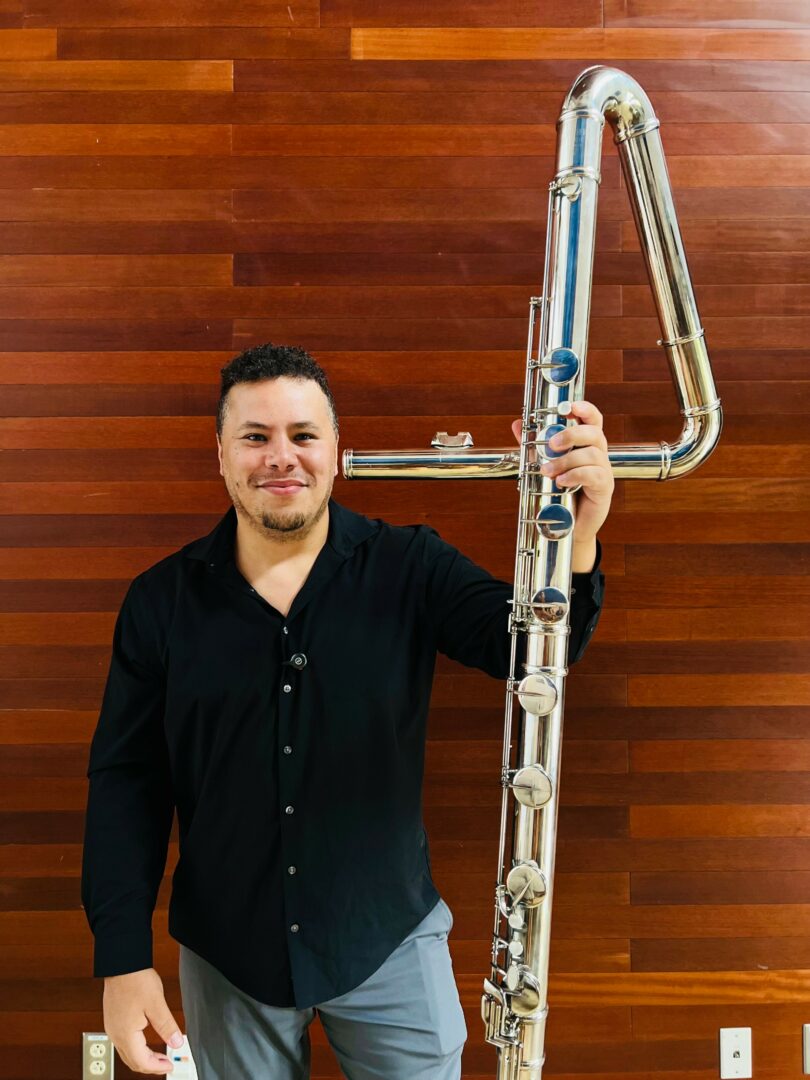
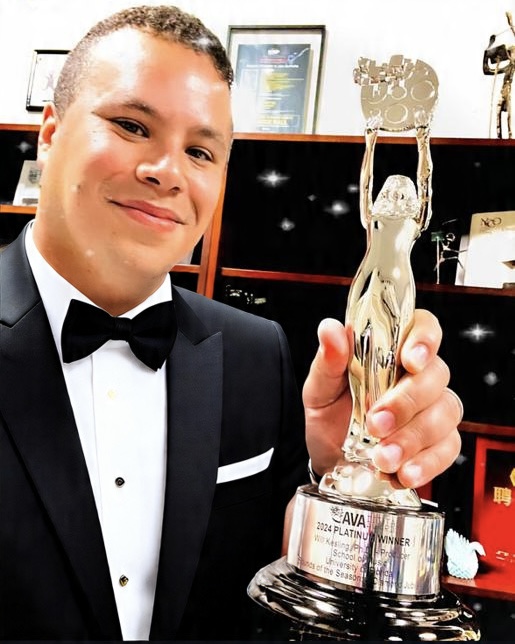
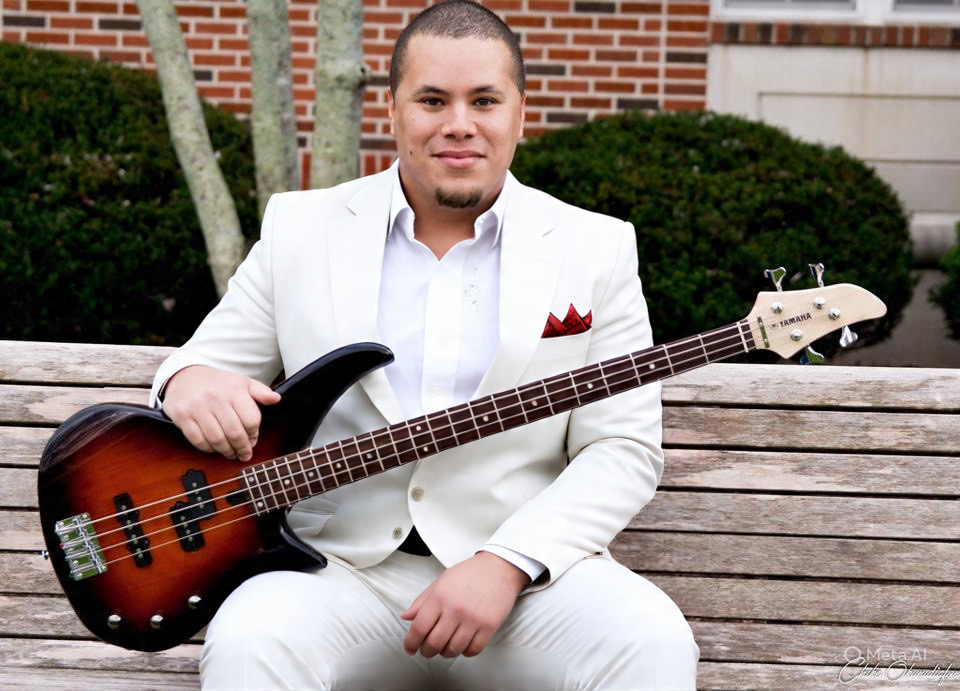
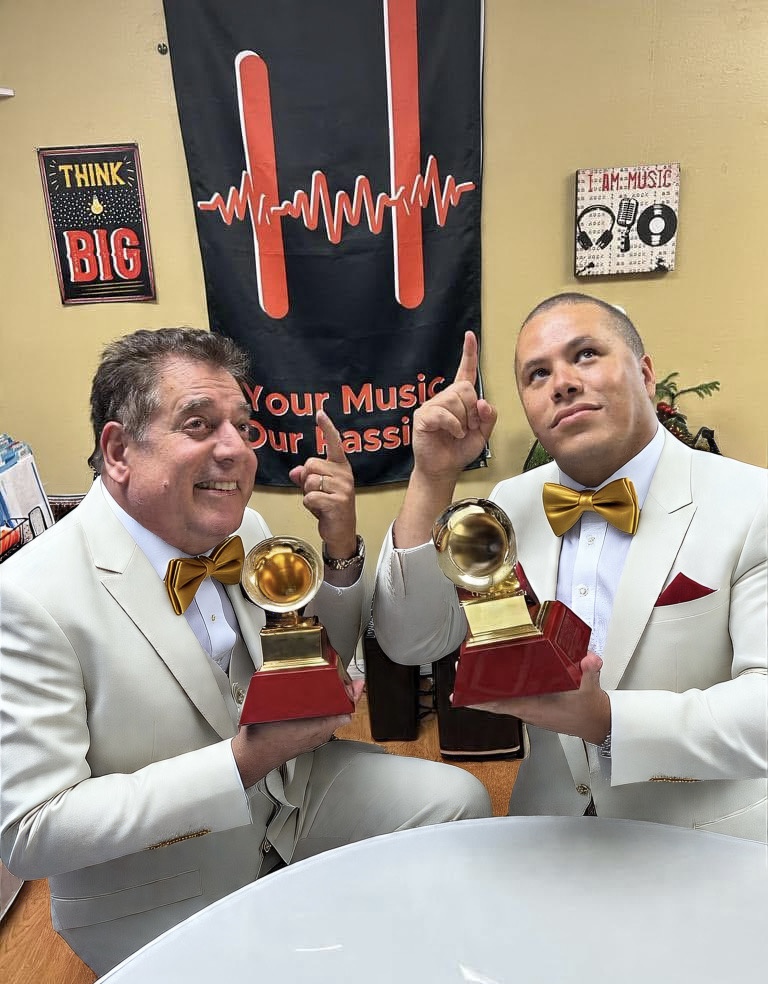
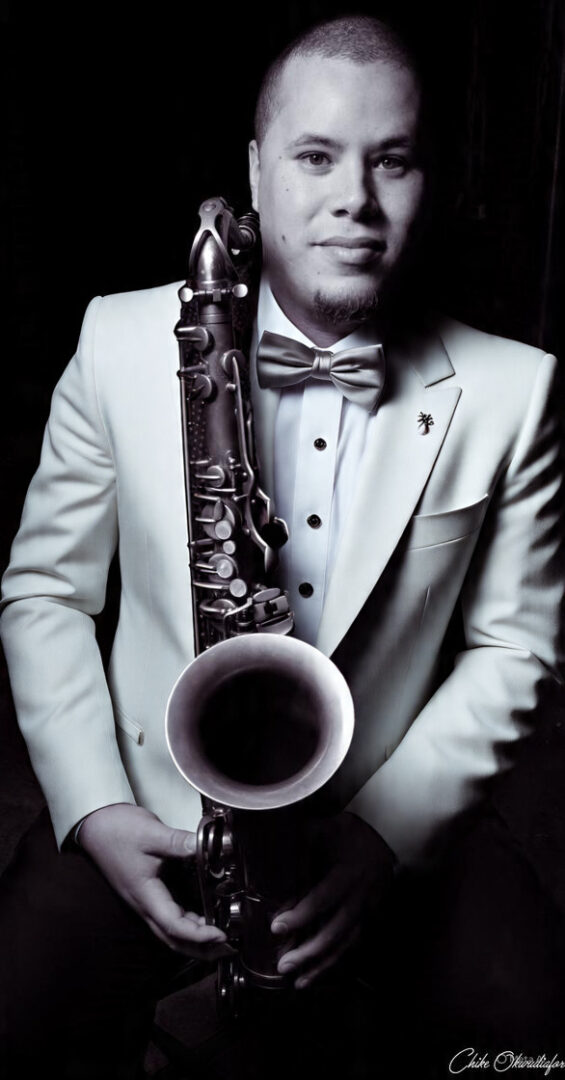
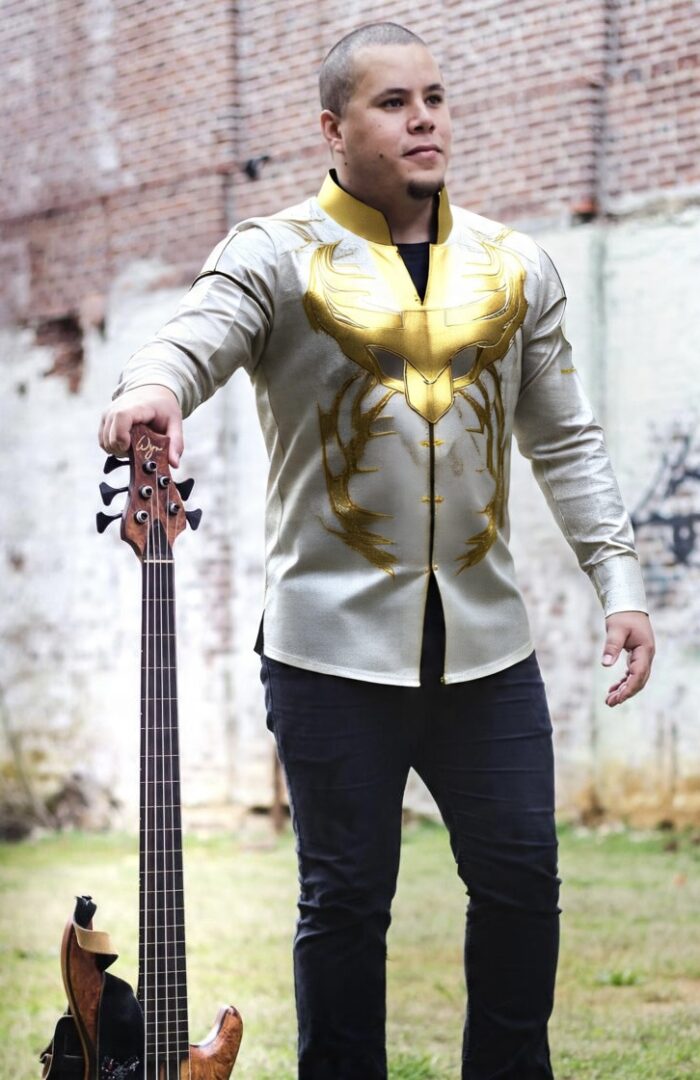
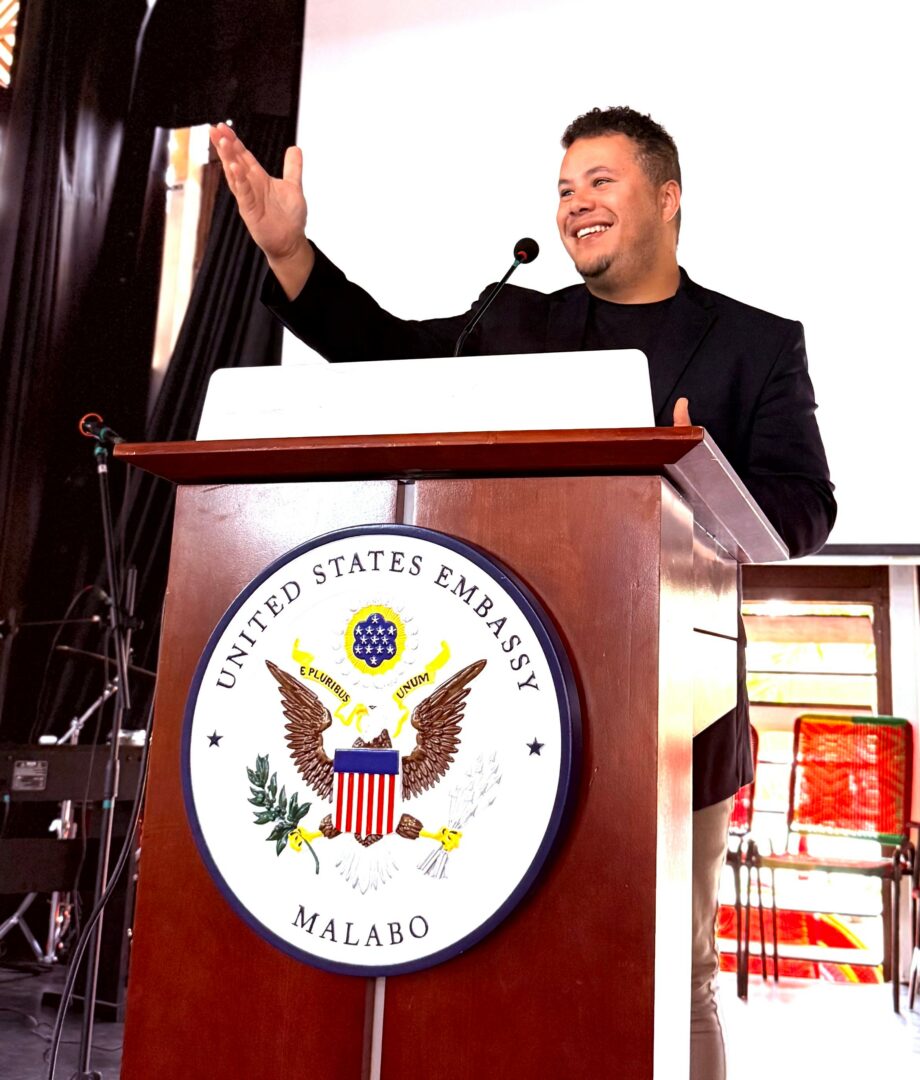
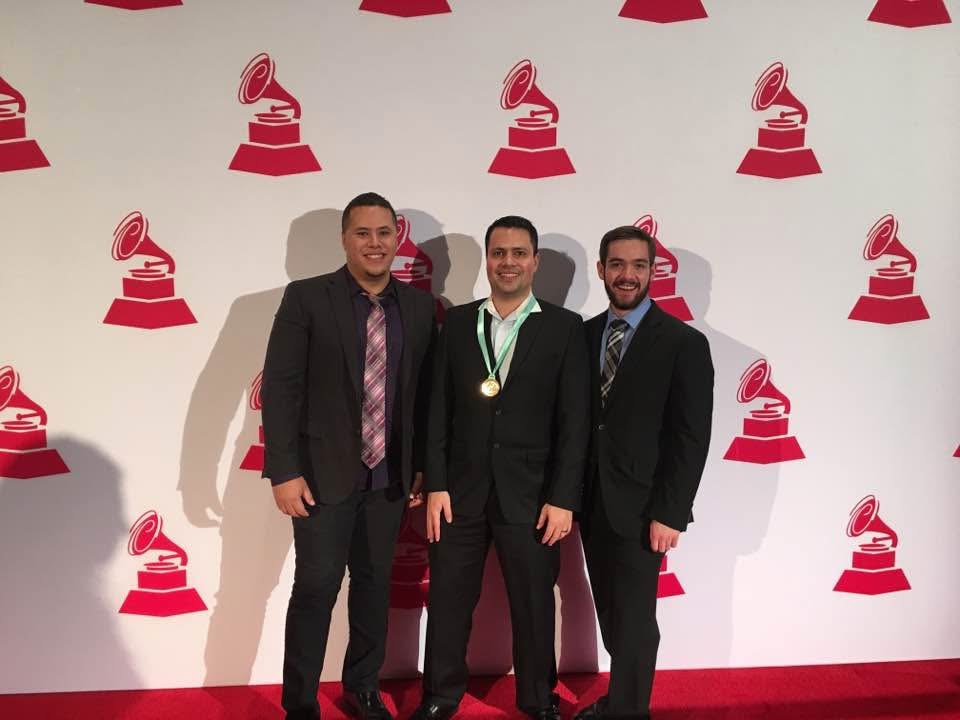
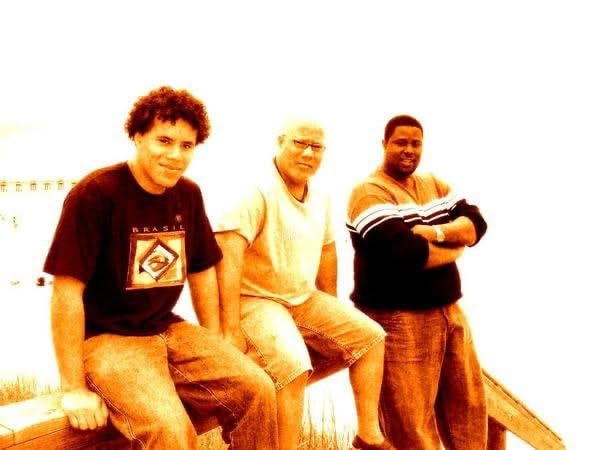
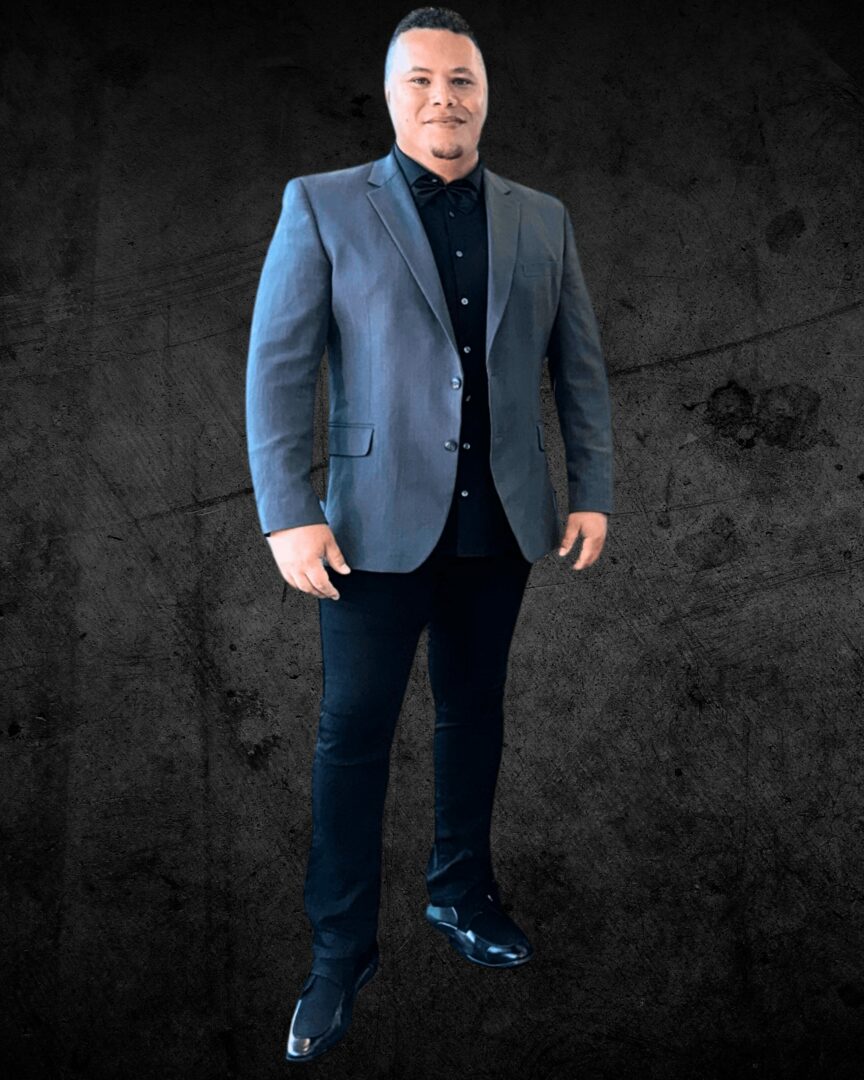
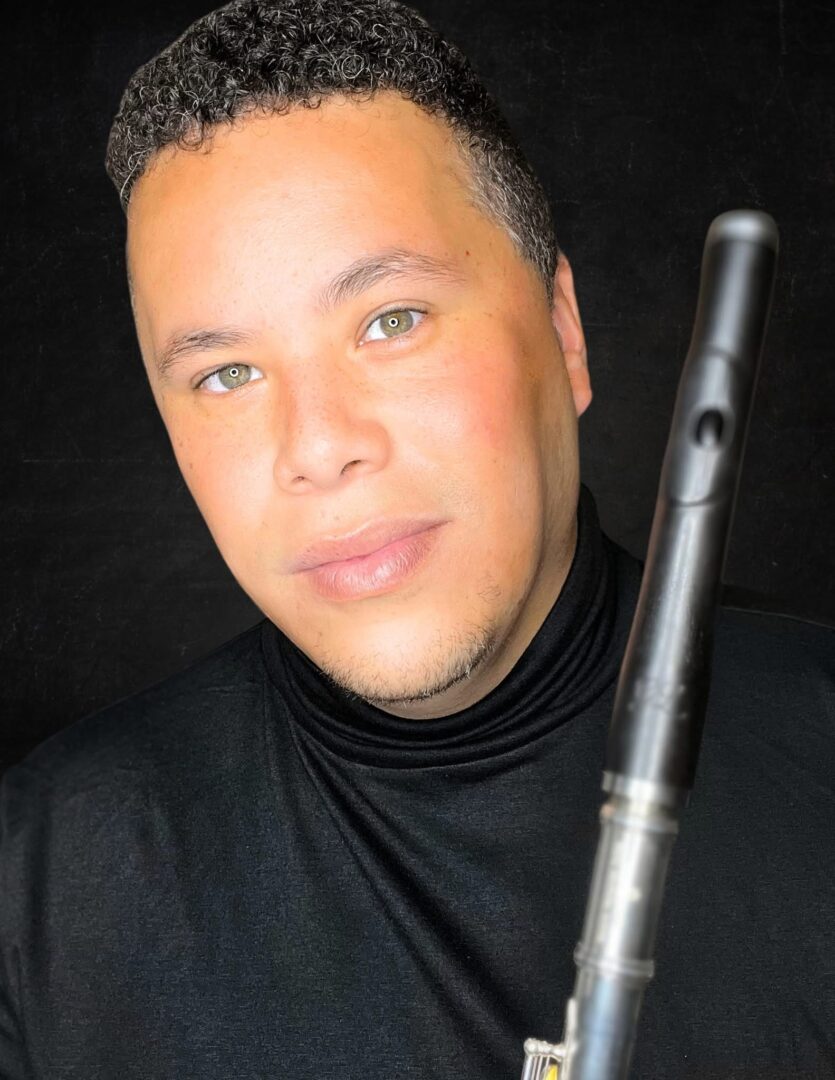
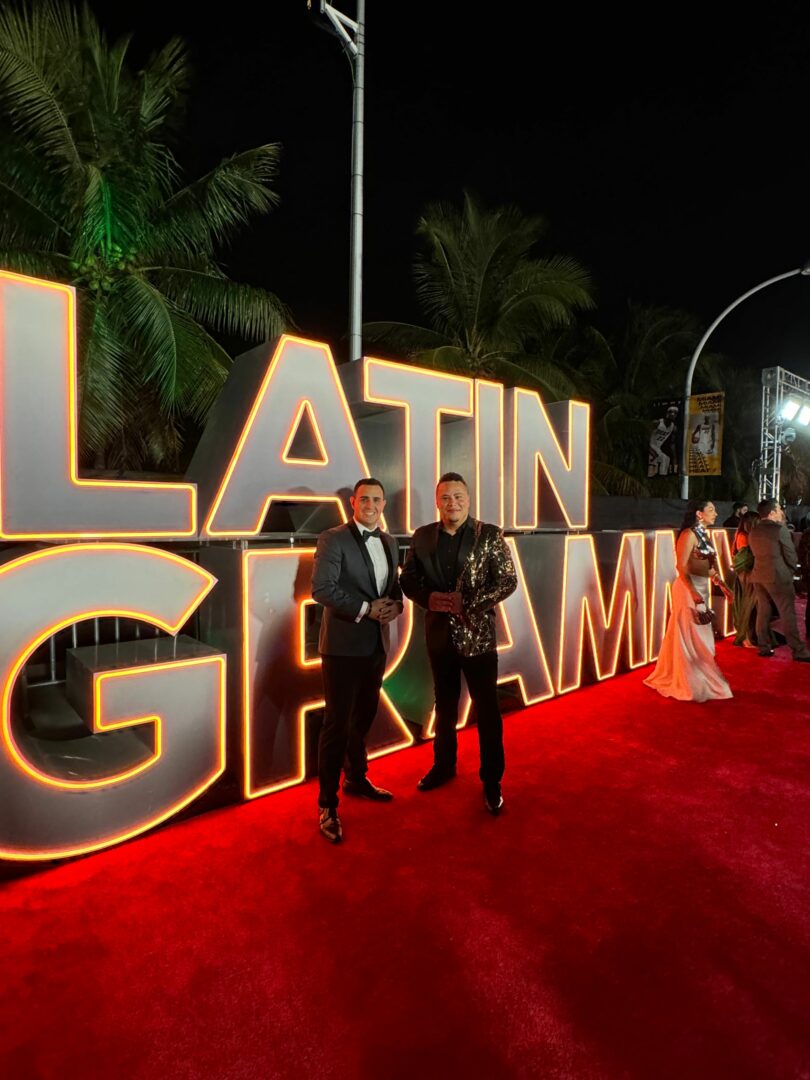
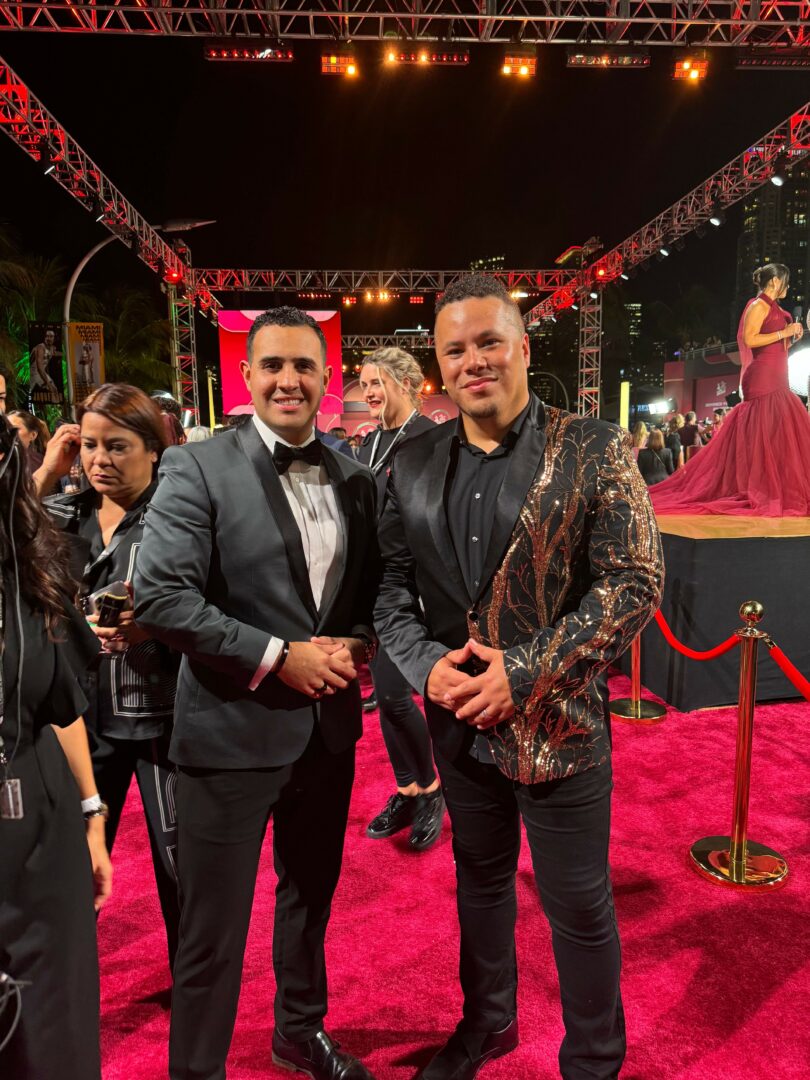
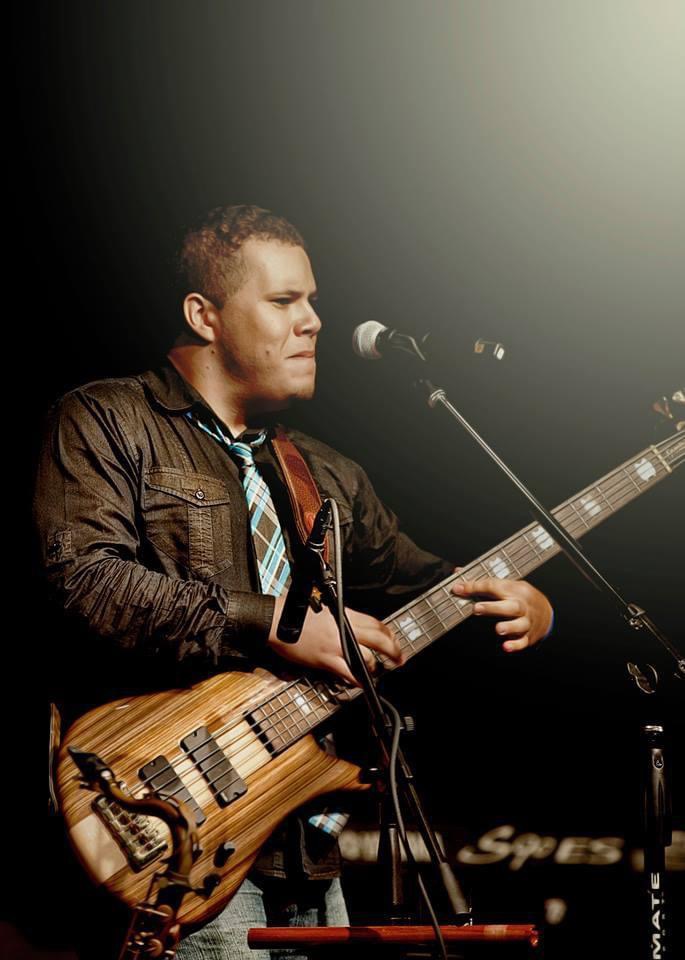
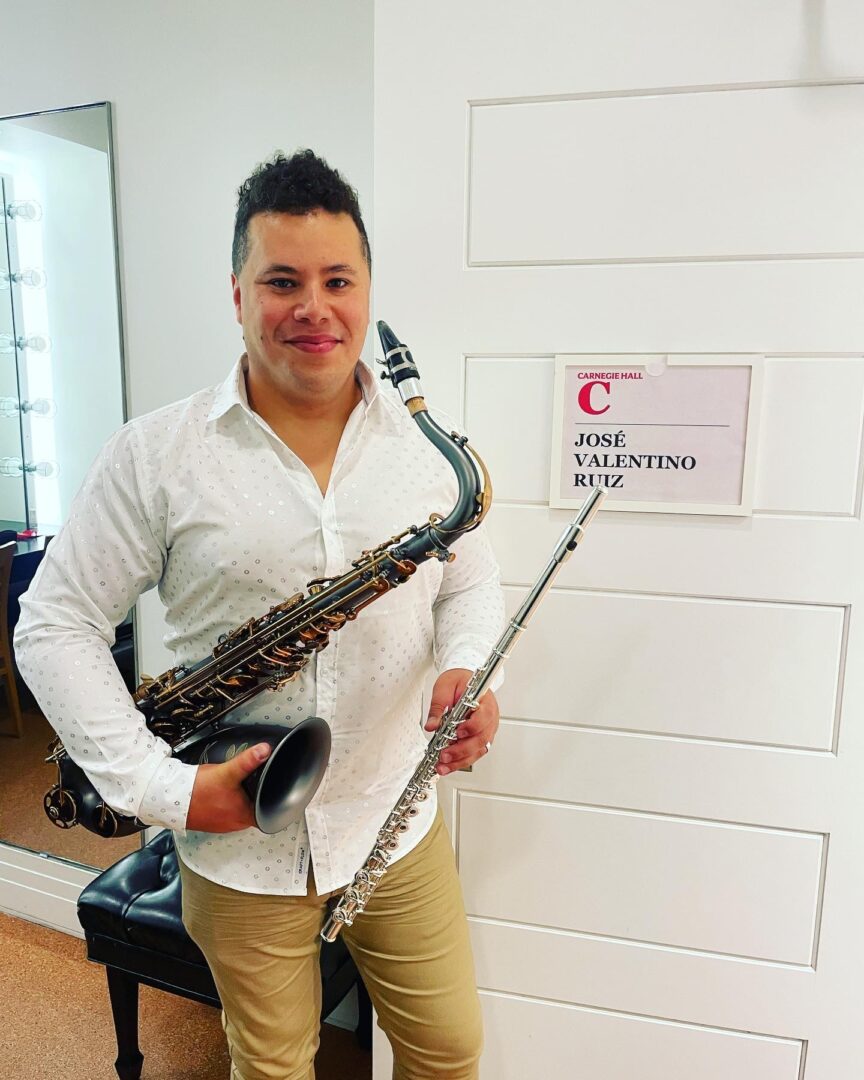
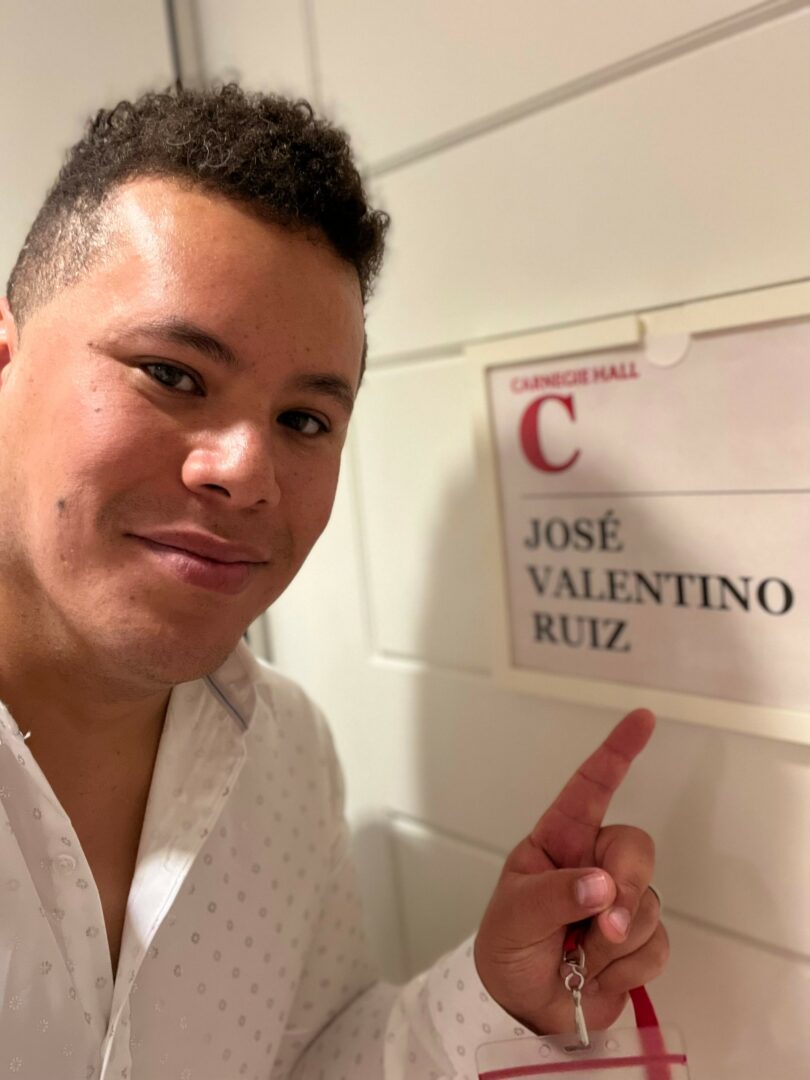
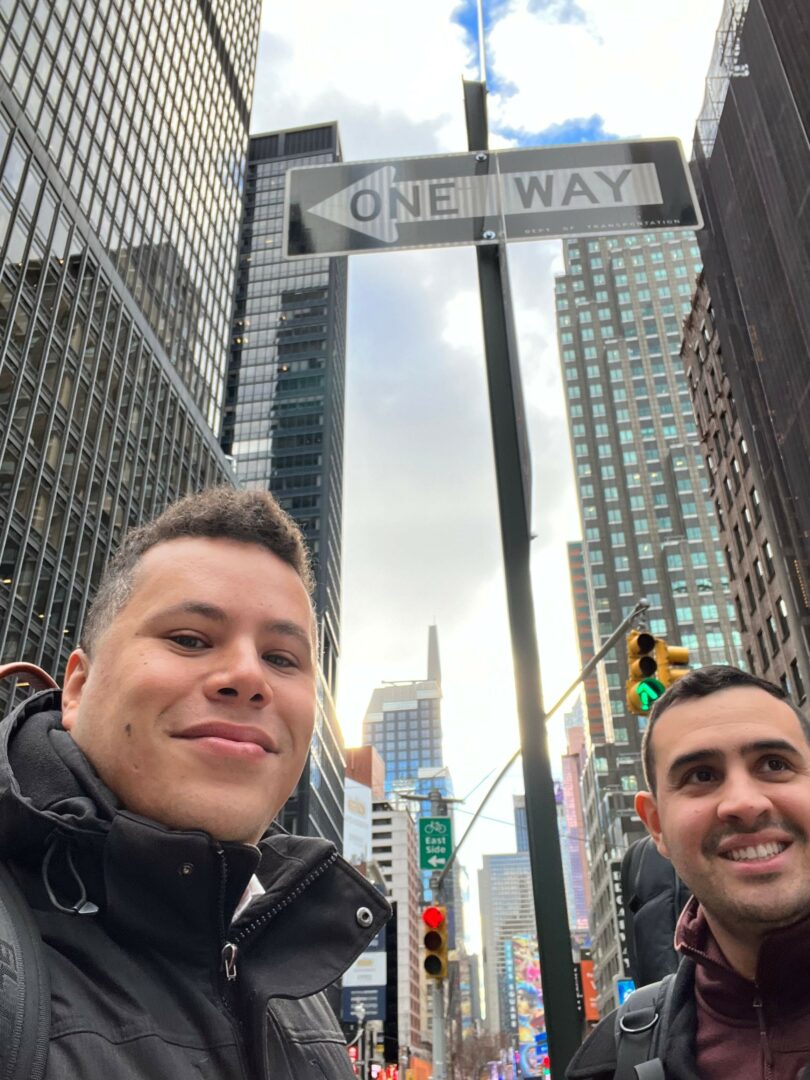
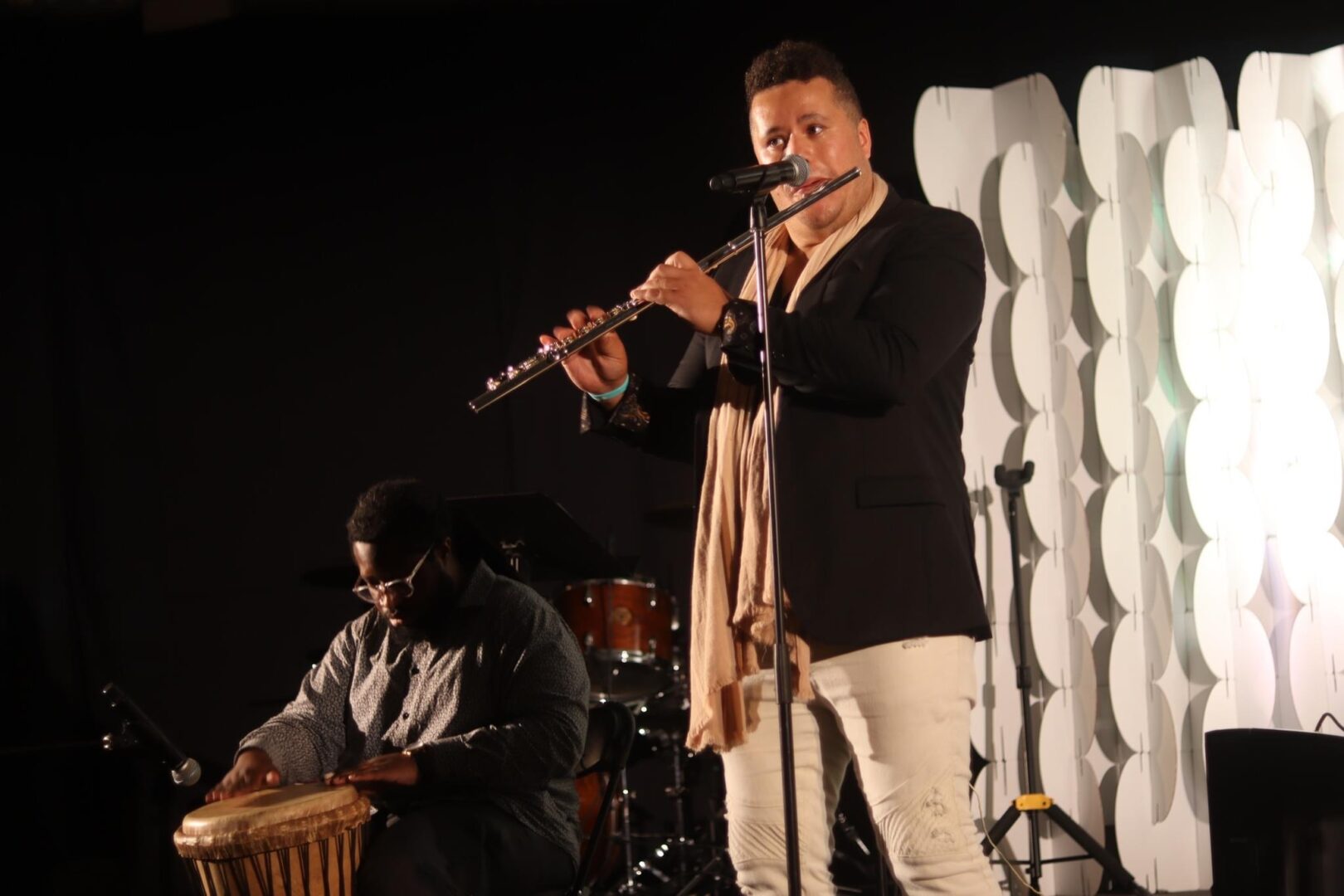
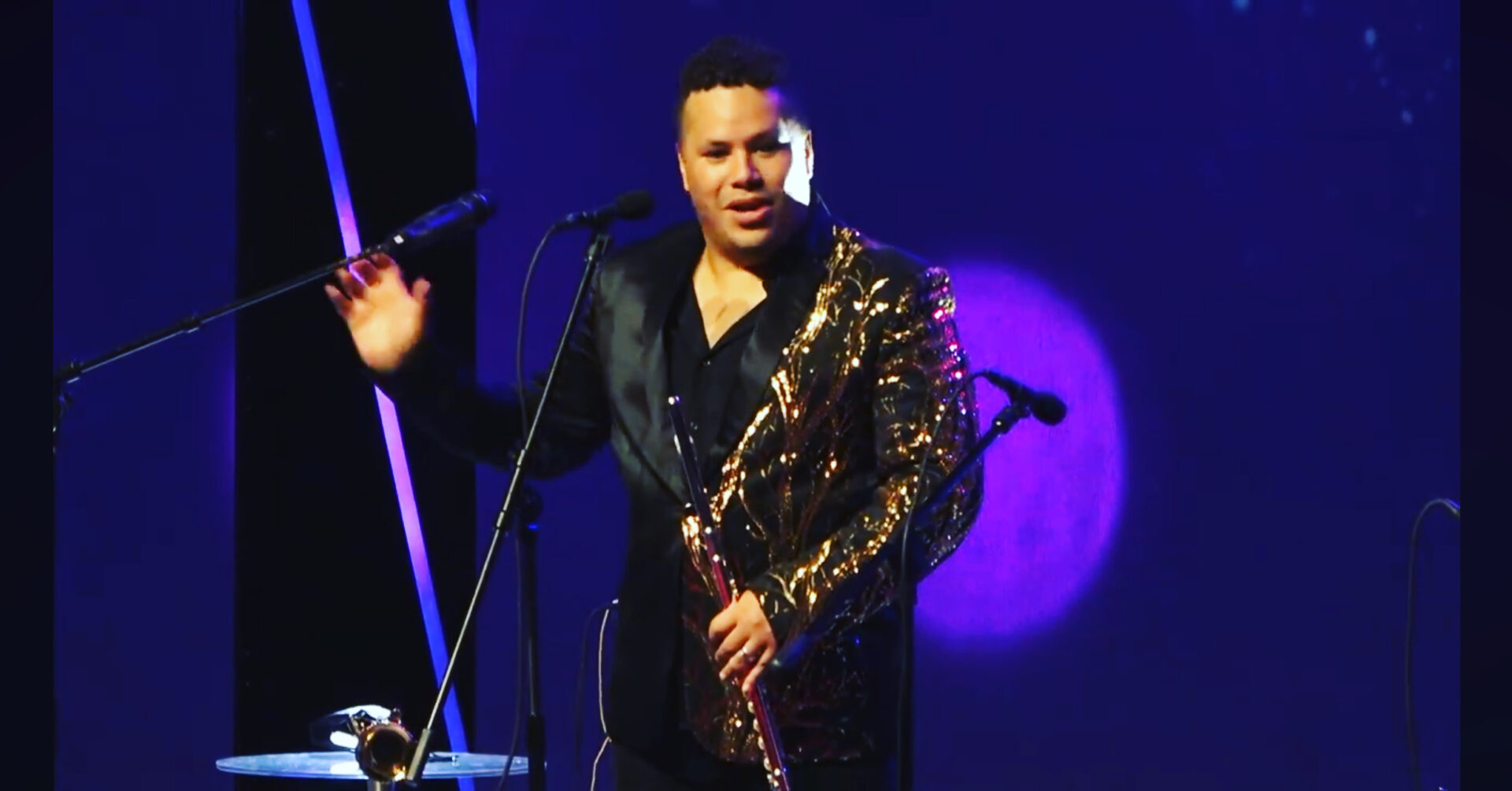


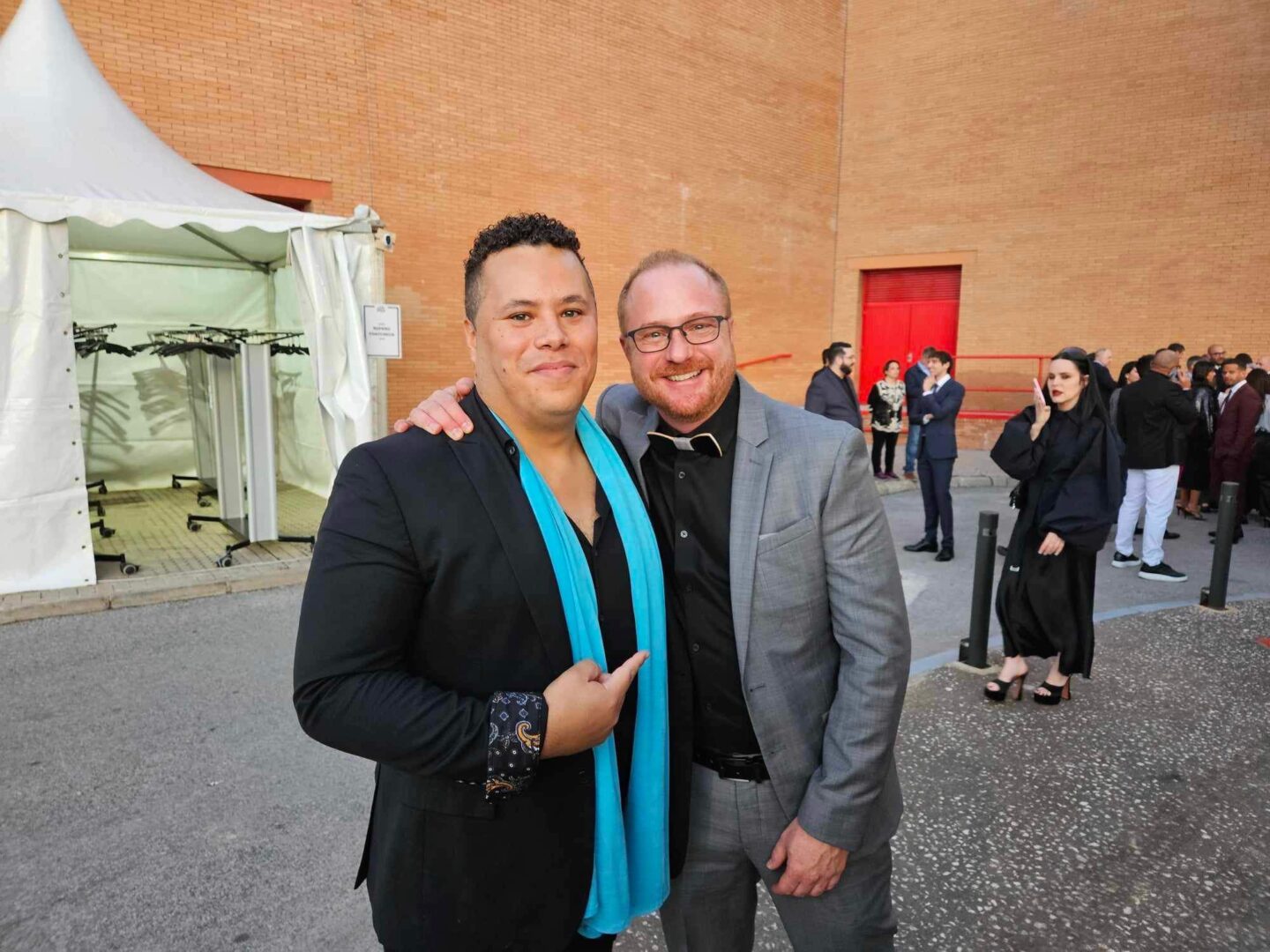
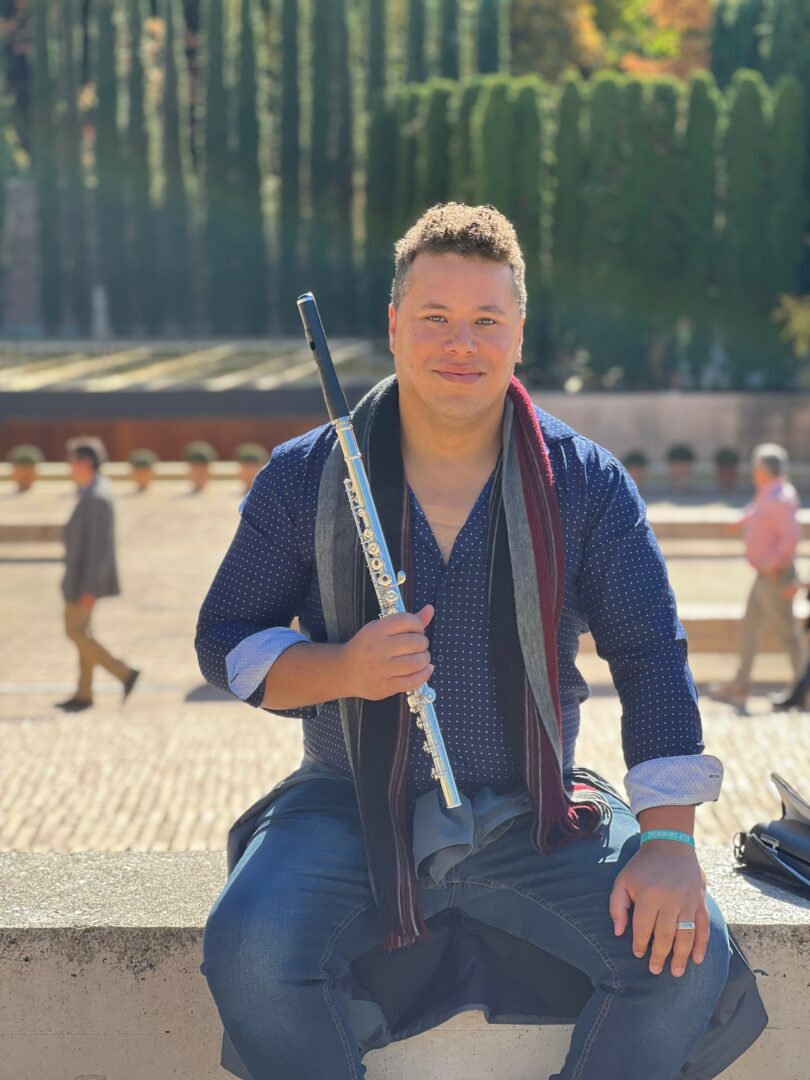
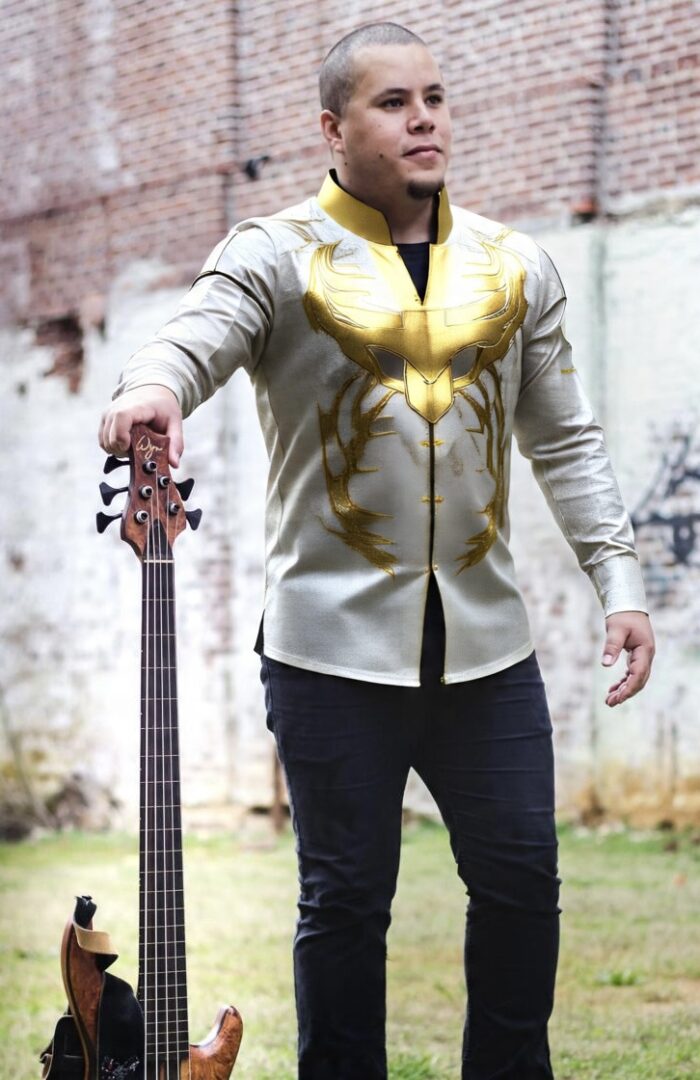
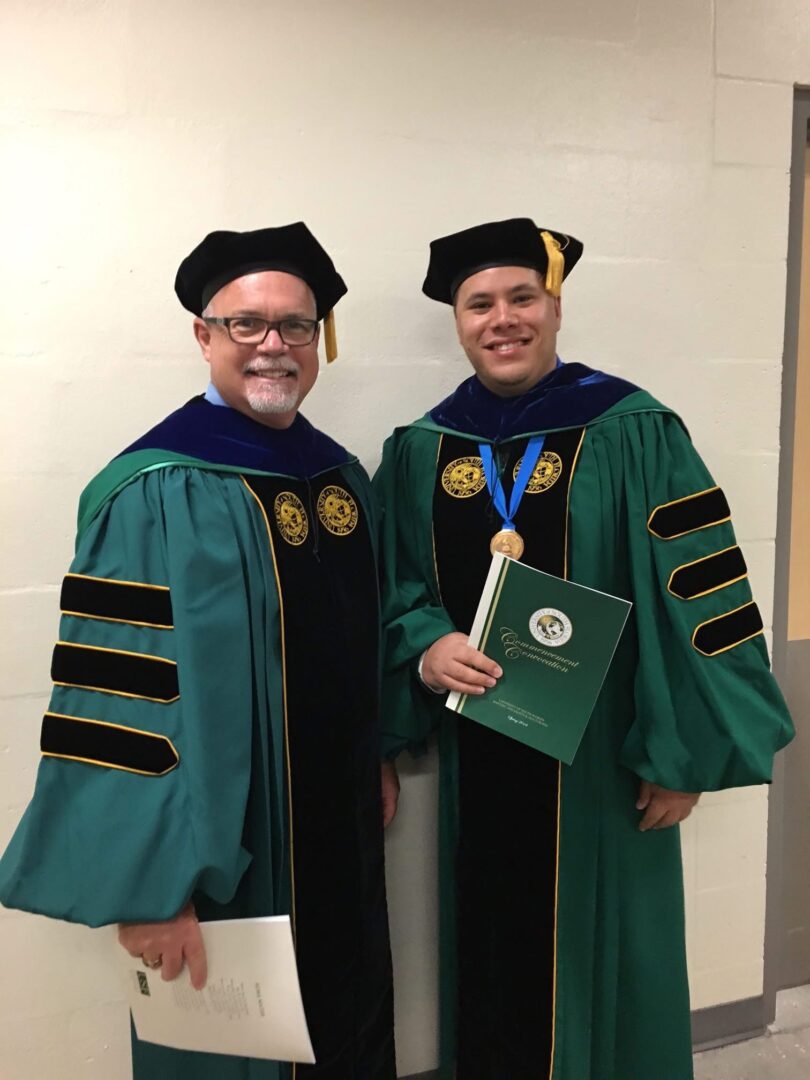
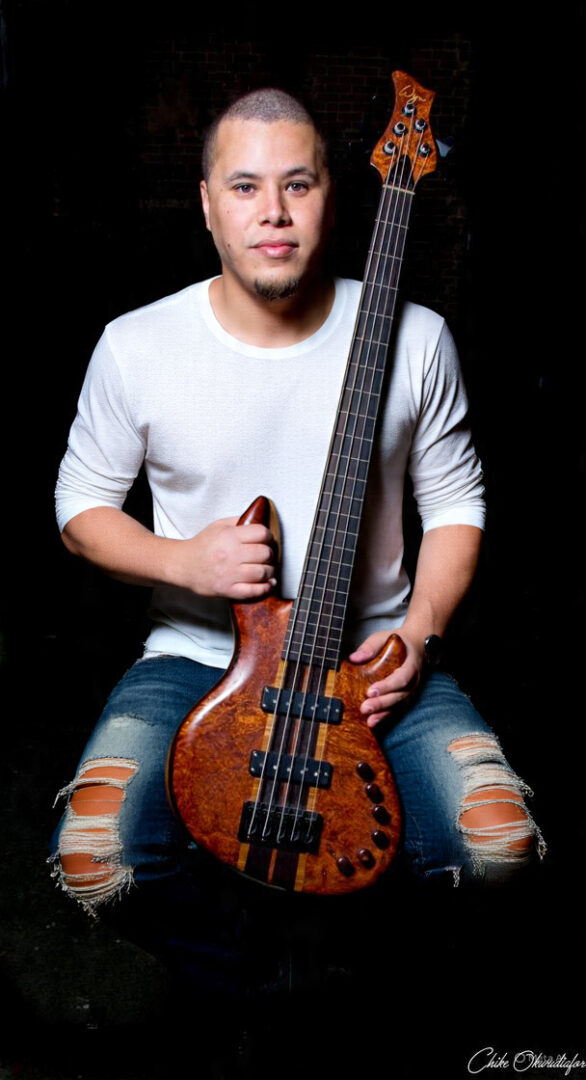
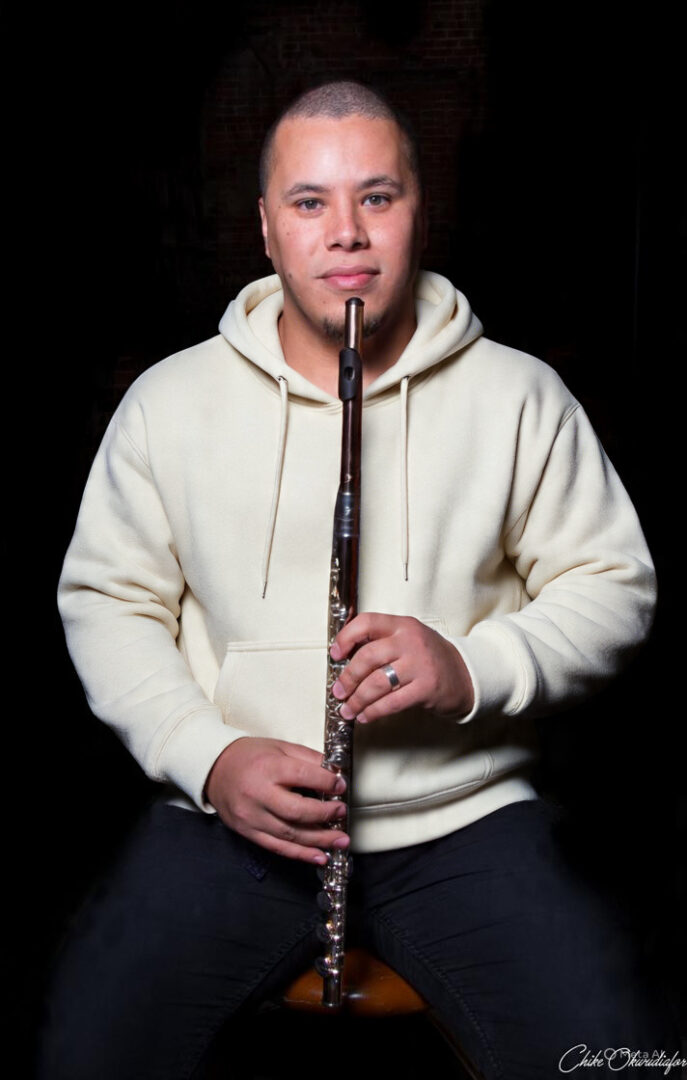
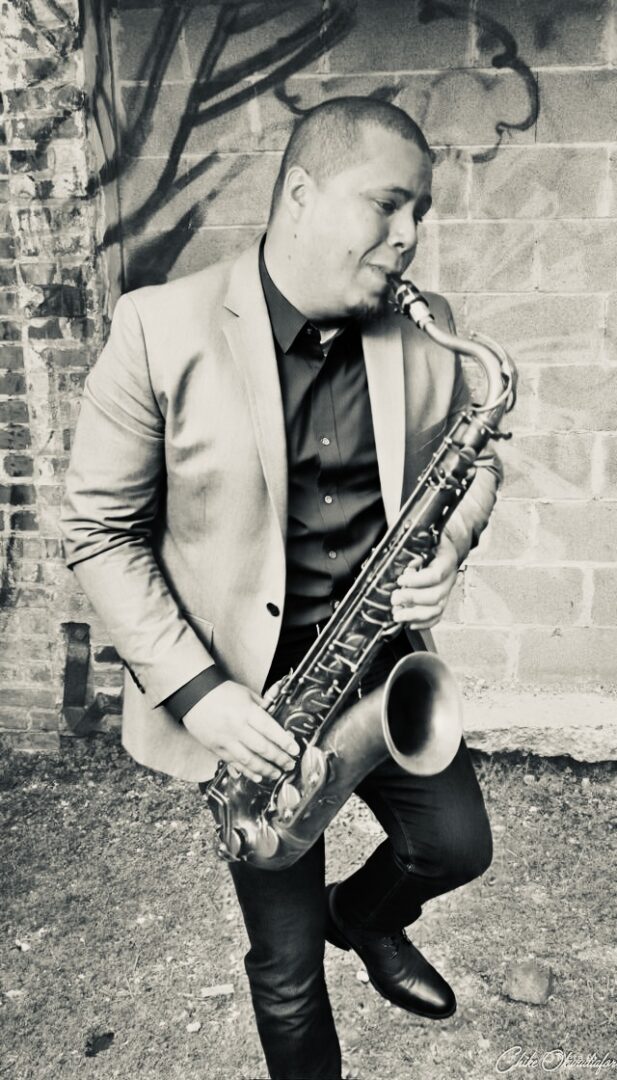
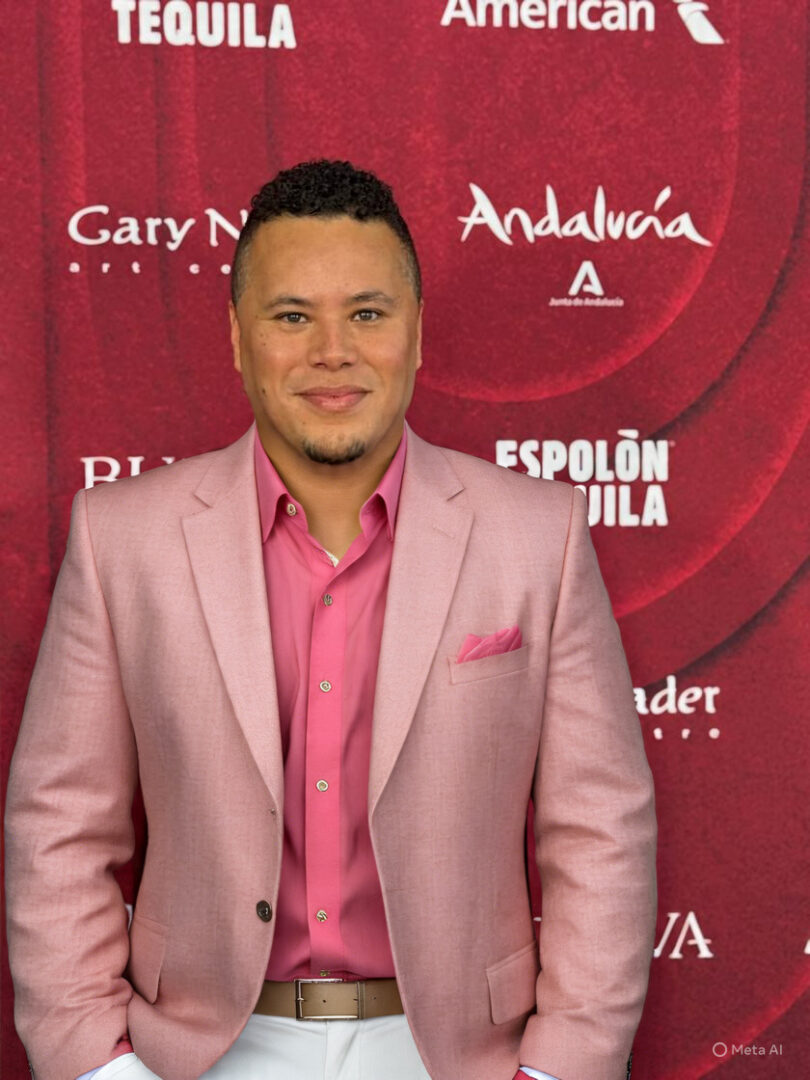
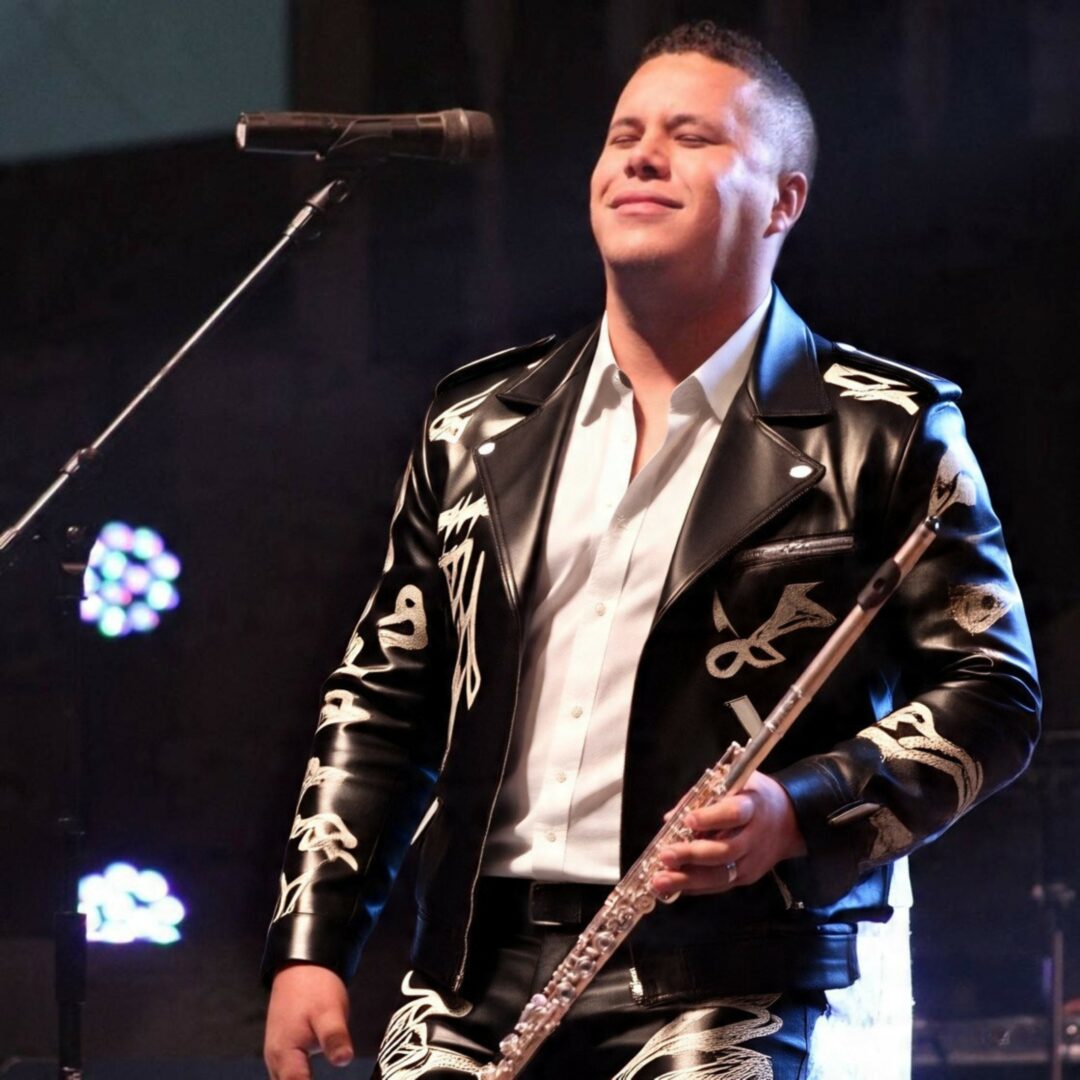

Image Credits
José Valentino
so if you or someone you know deserves recognition please let us know here.

